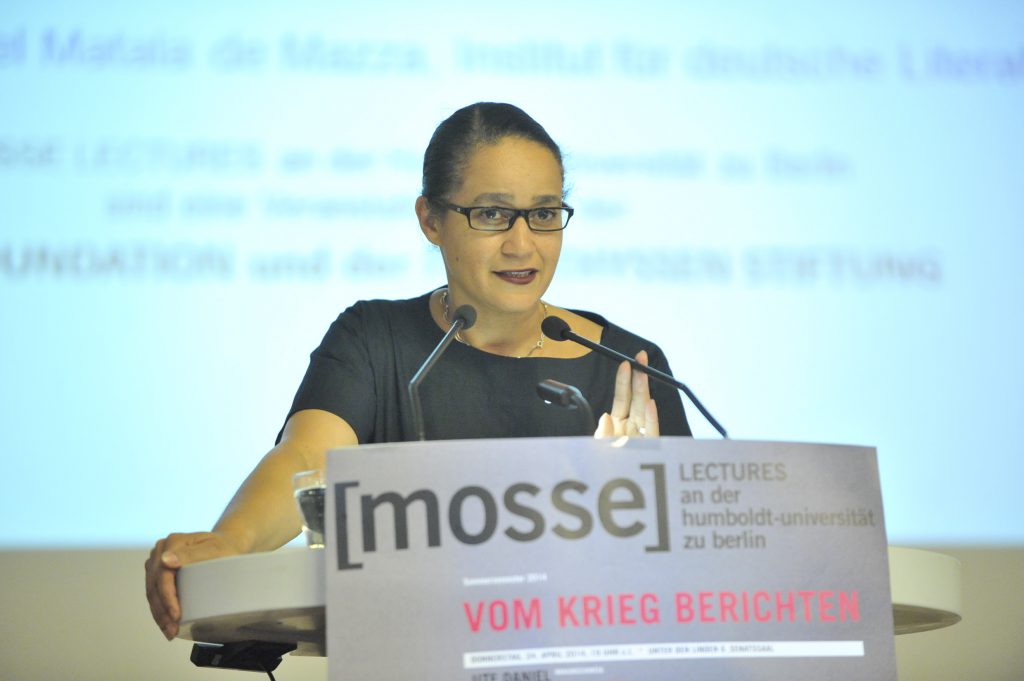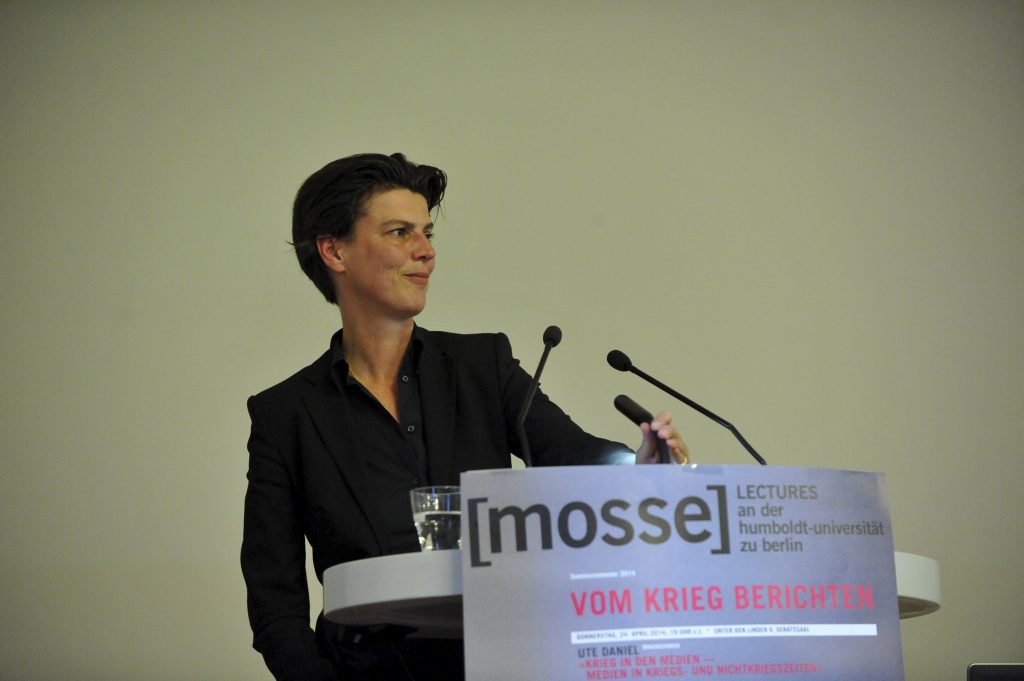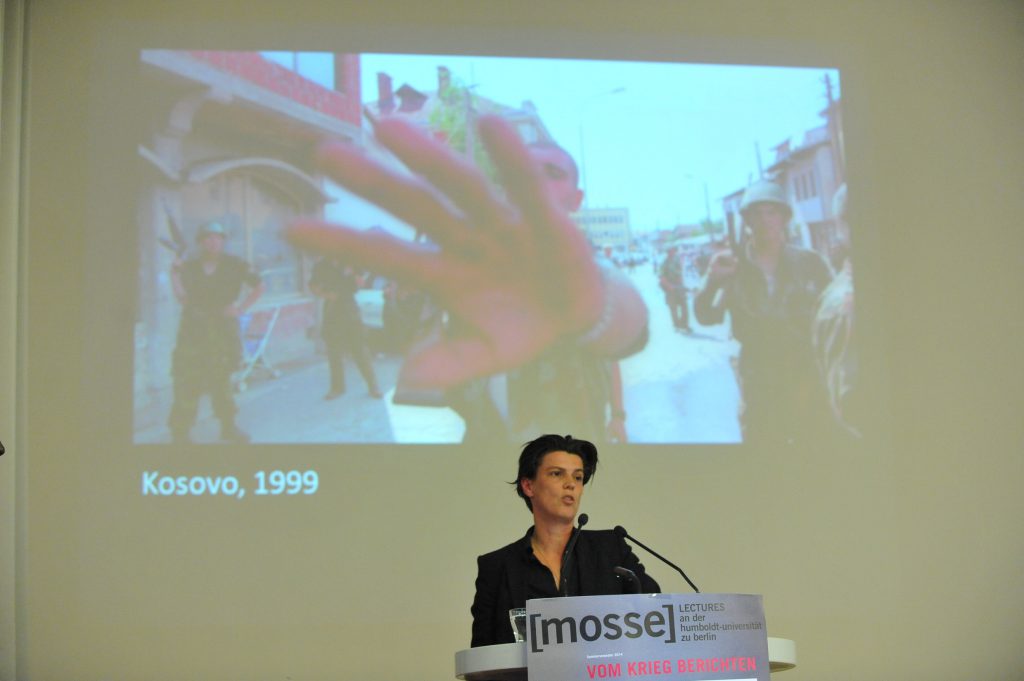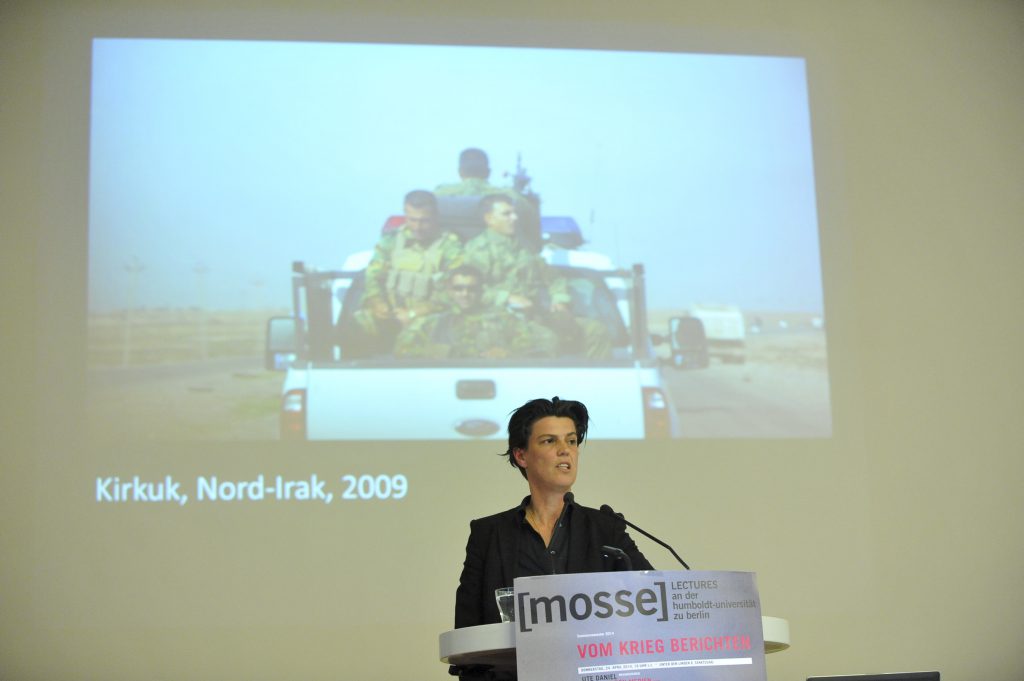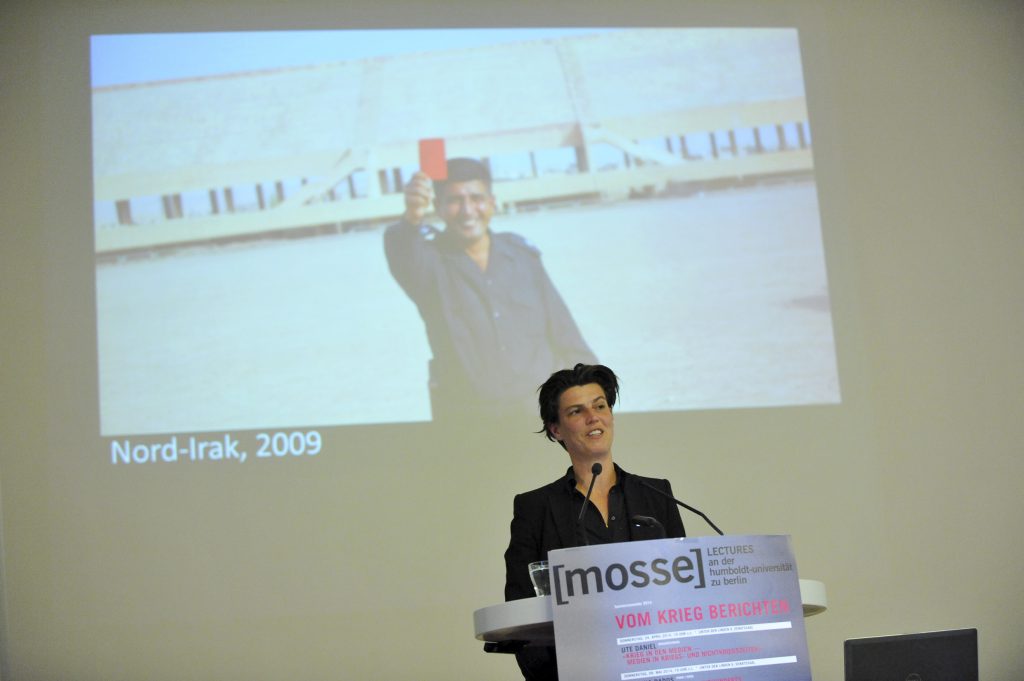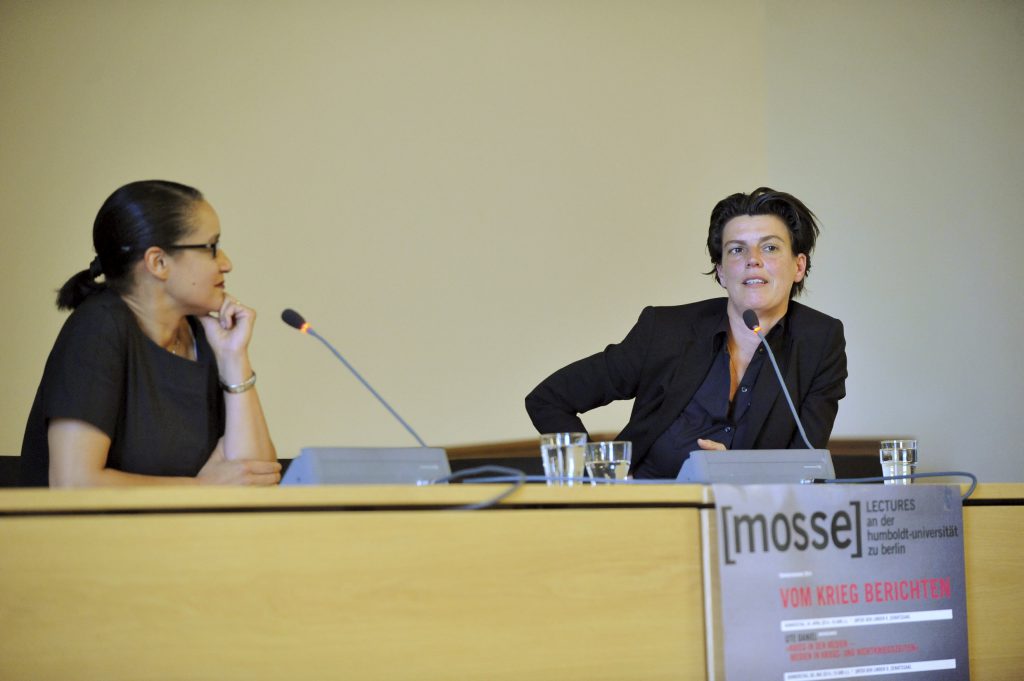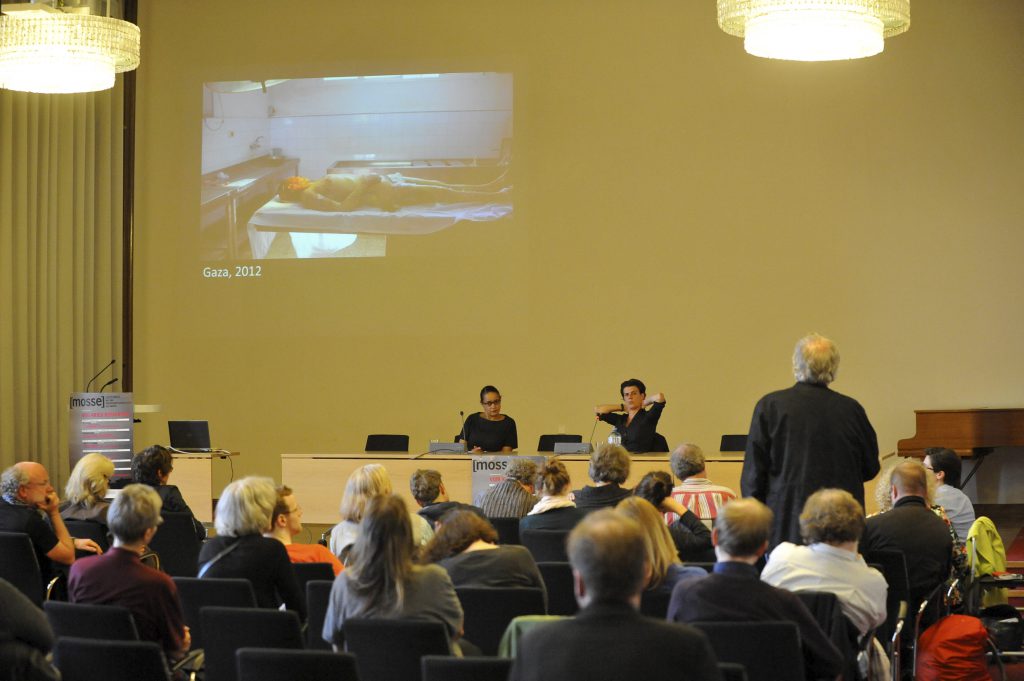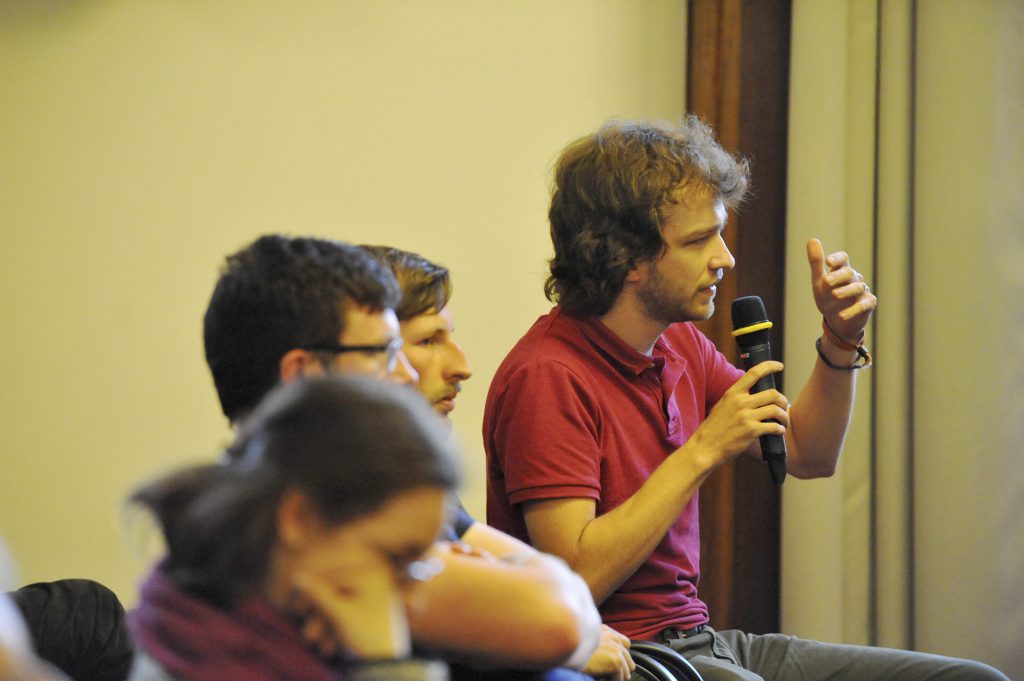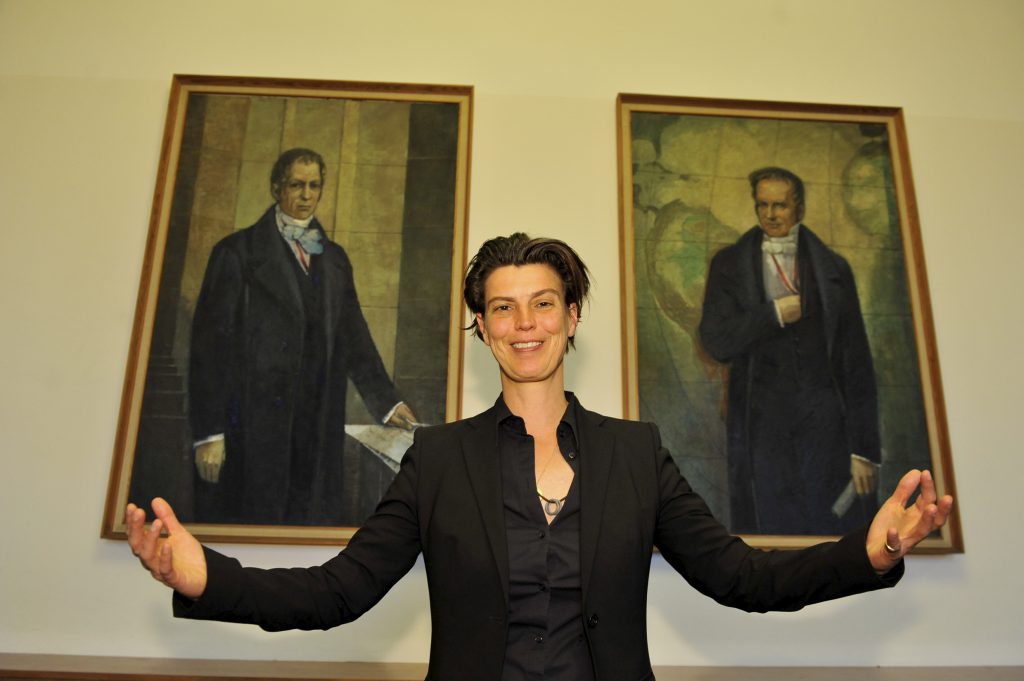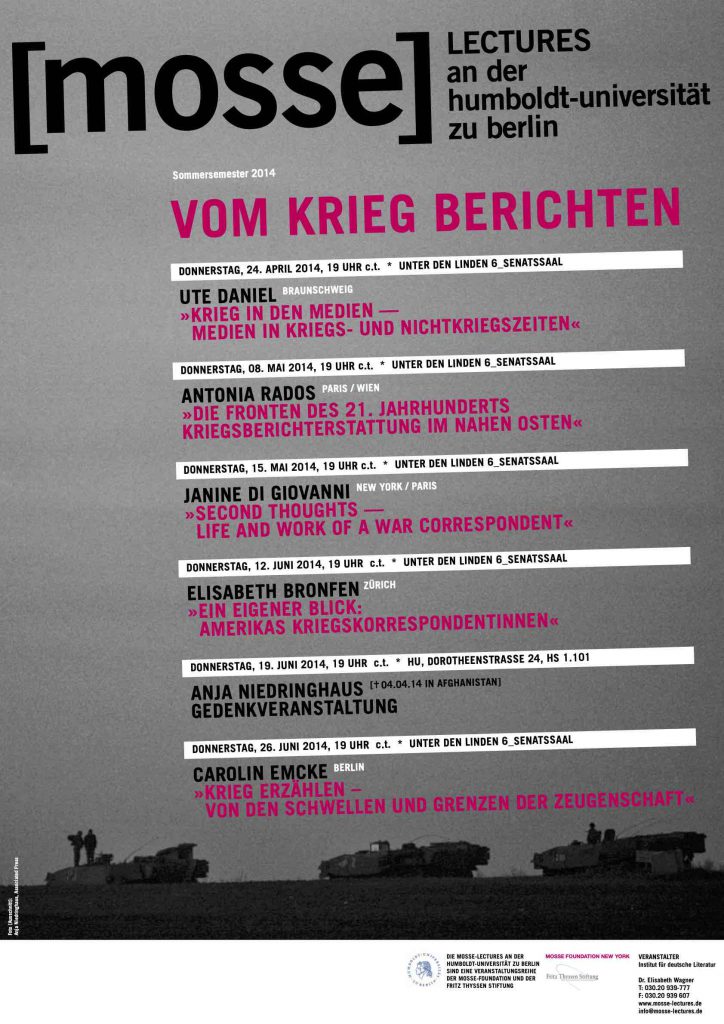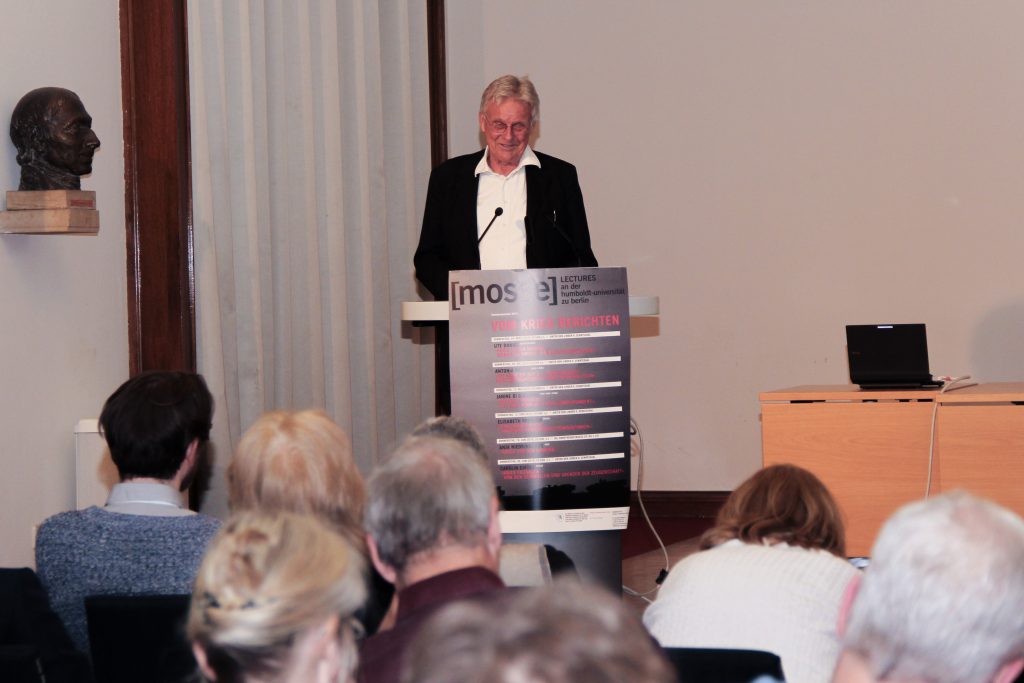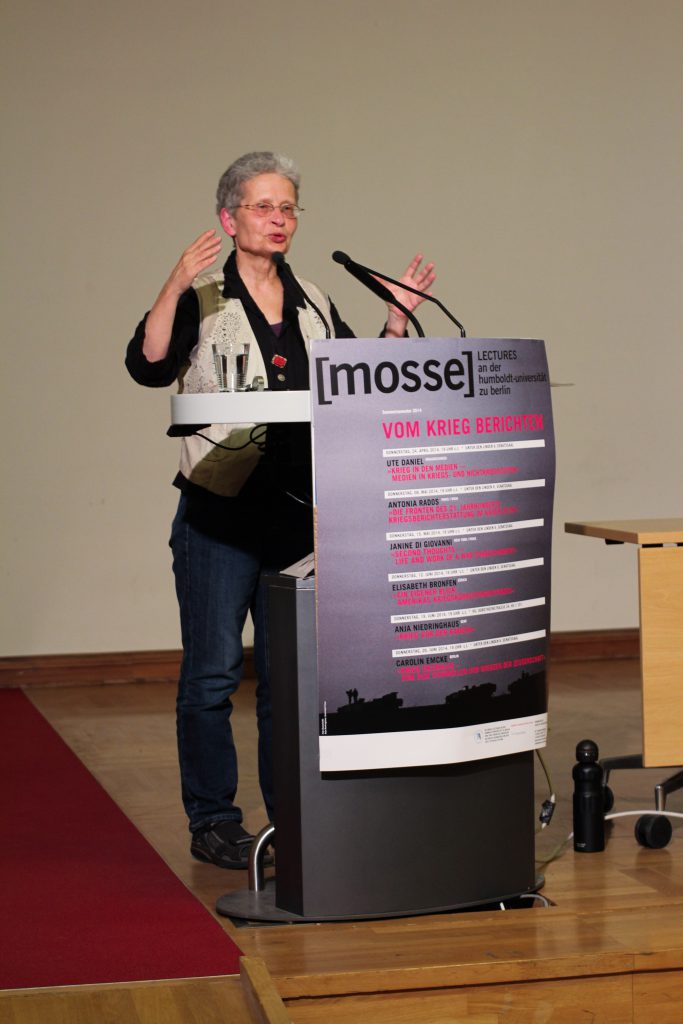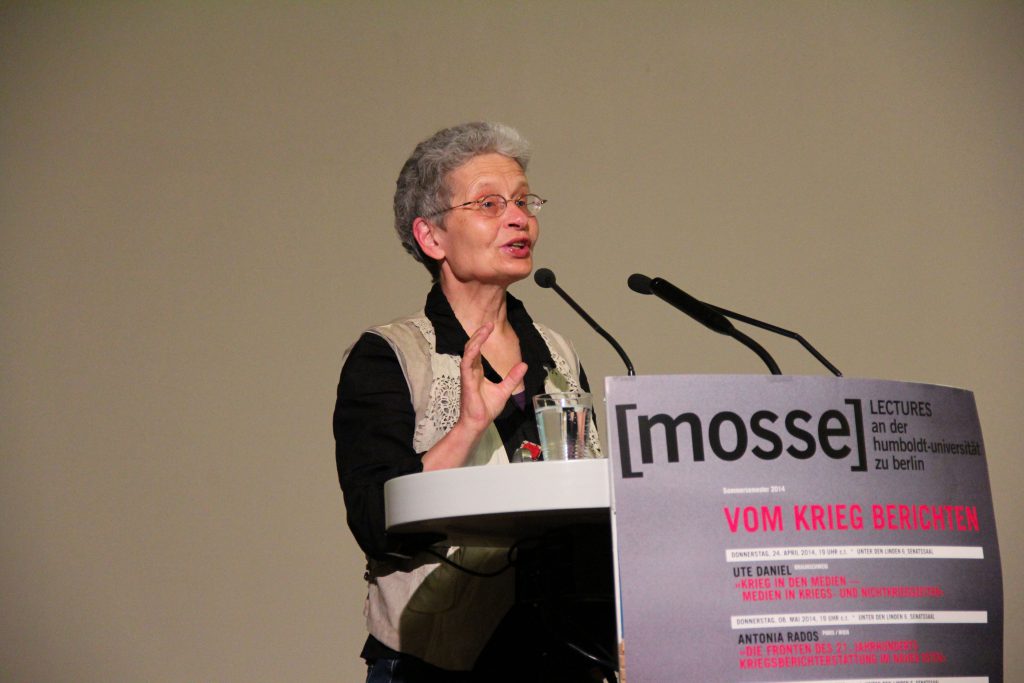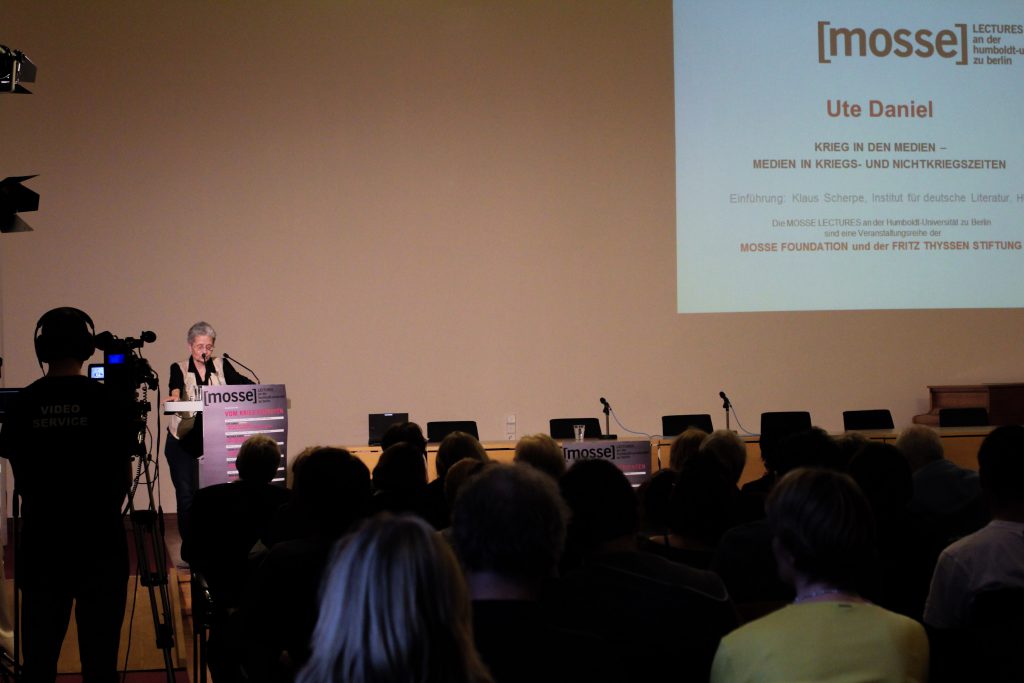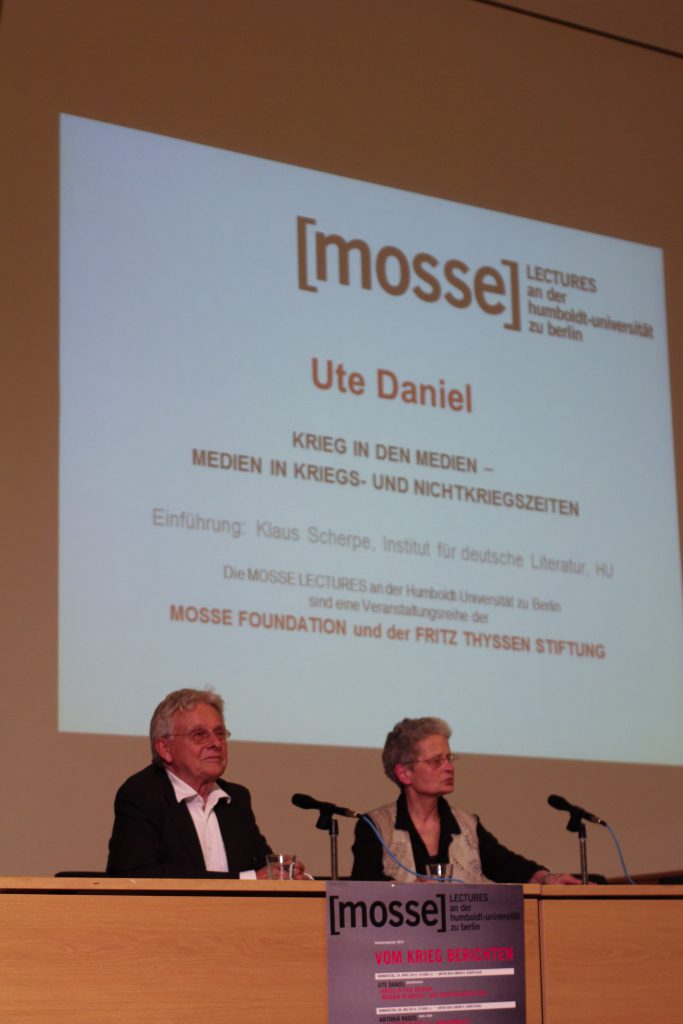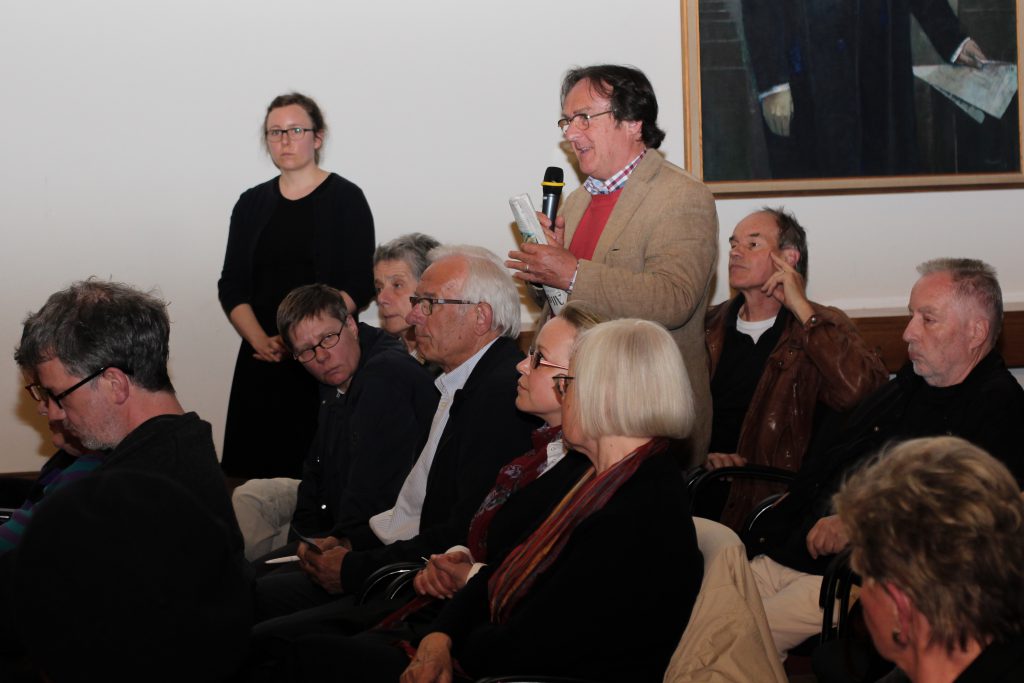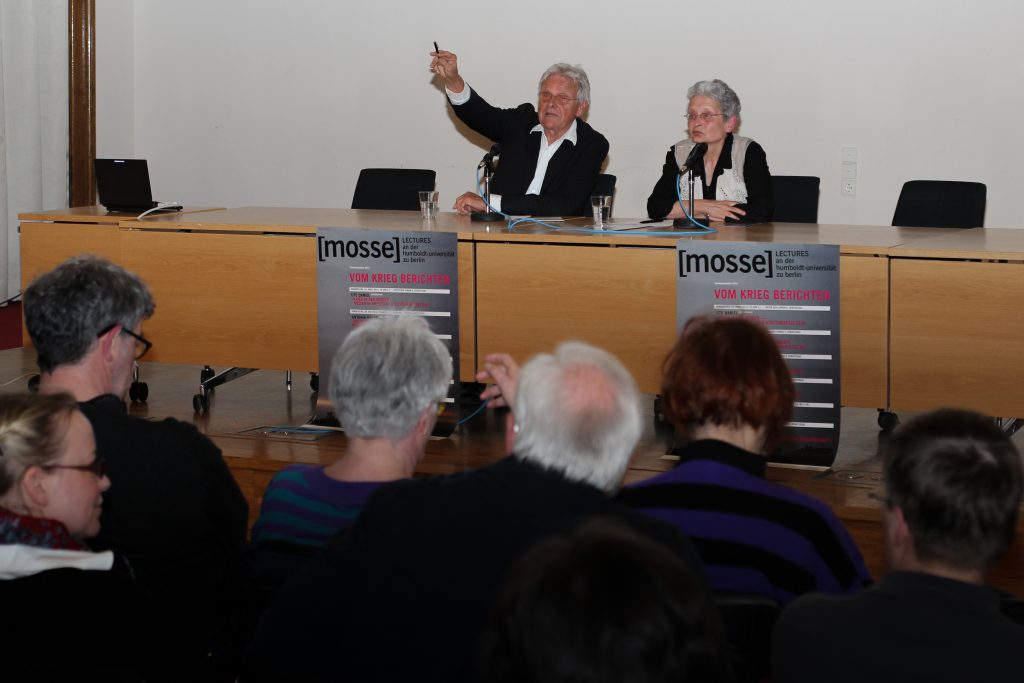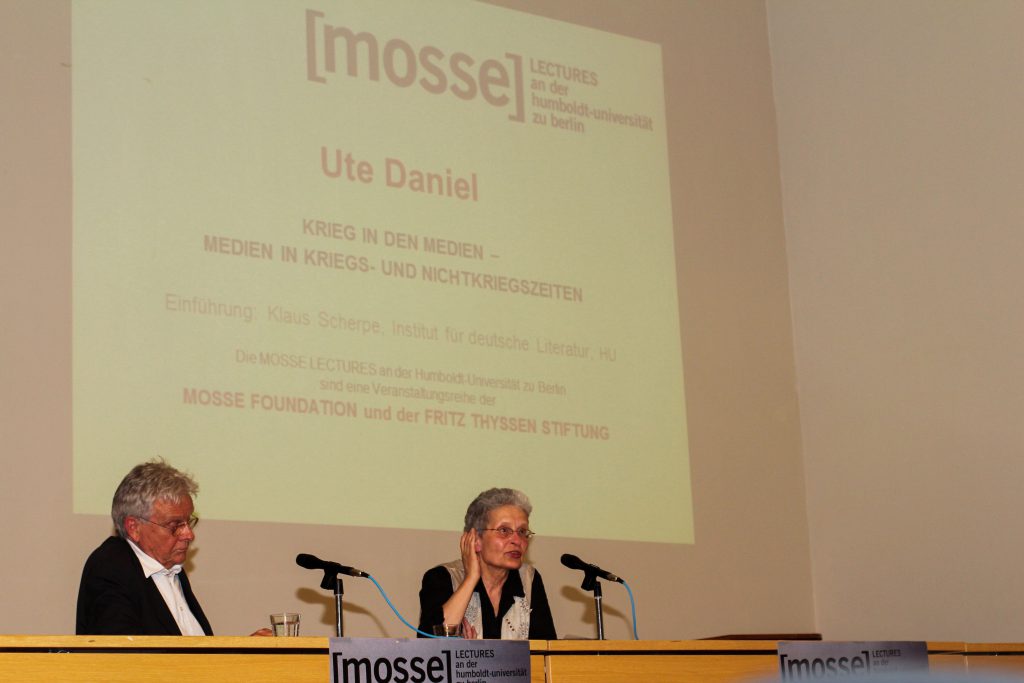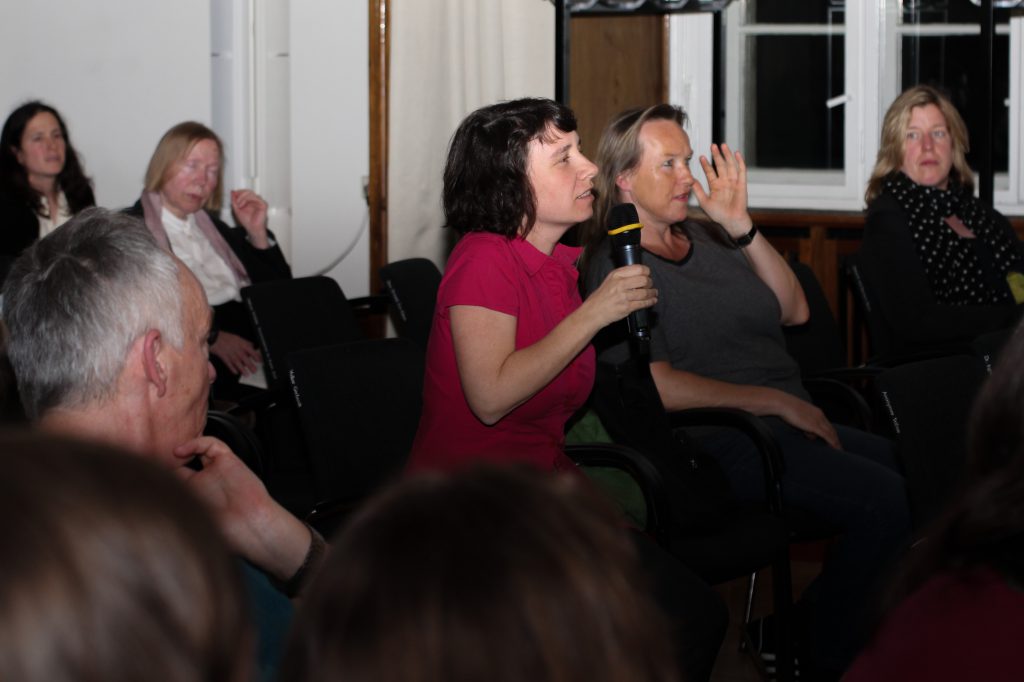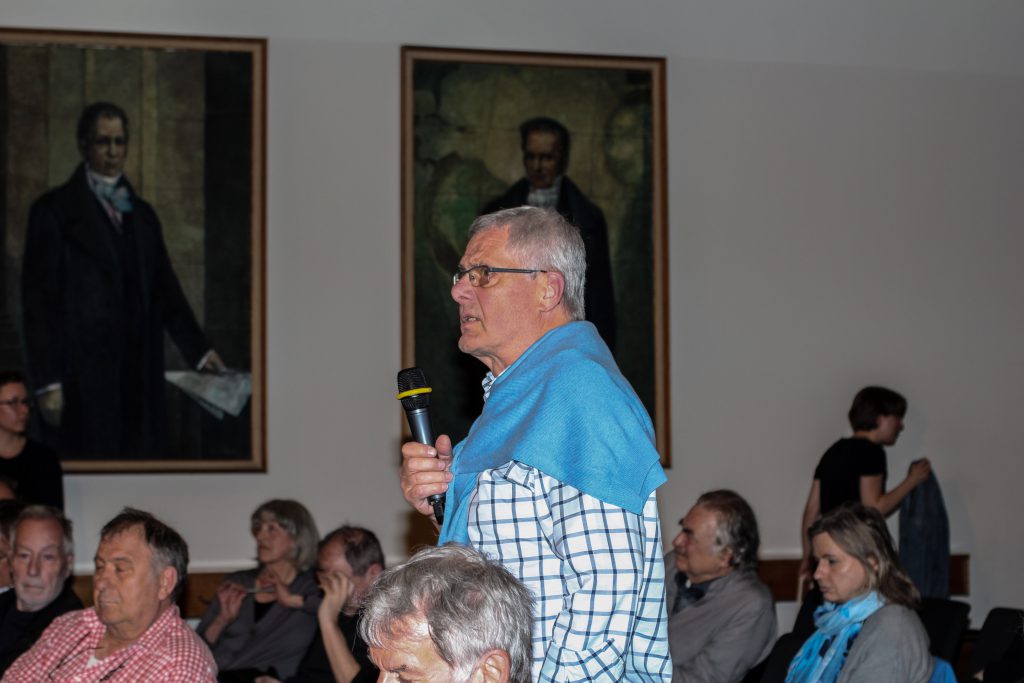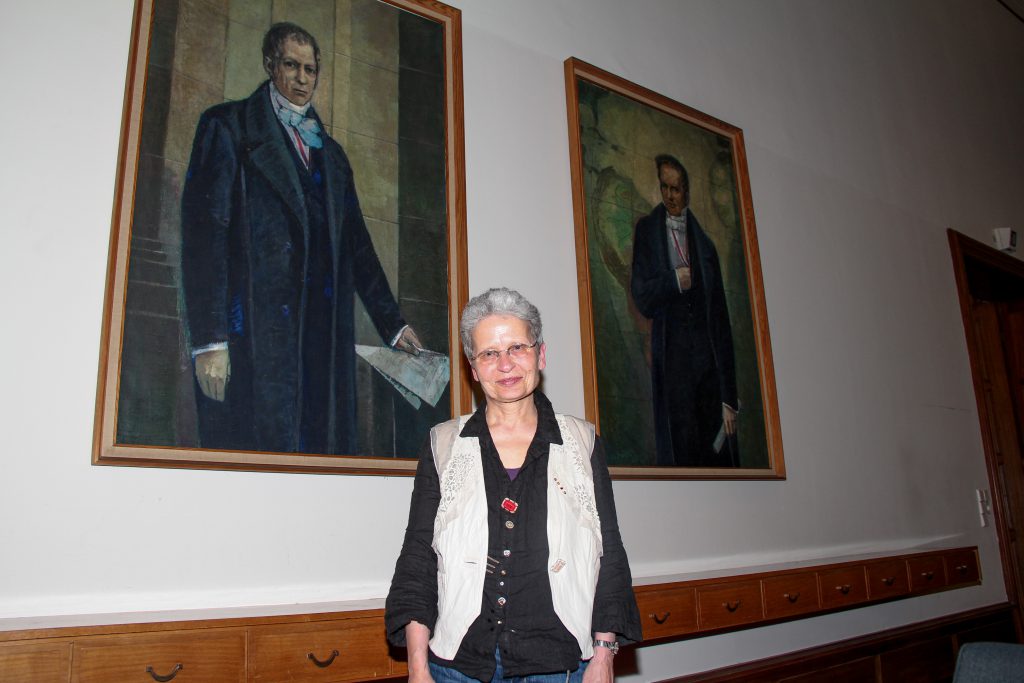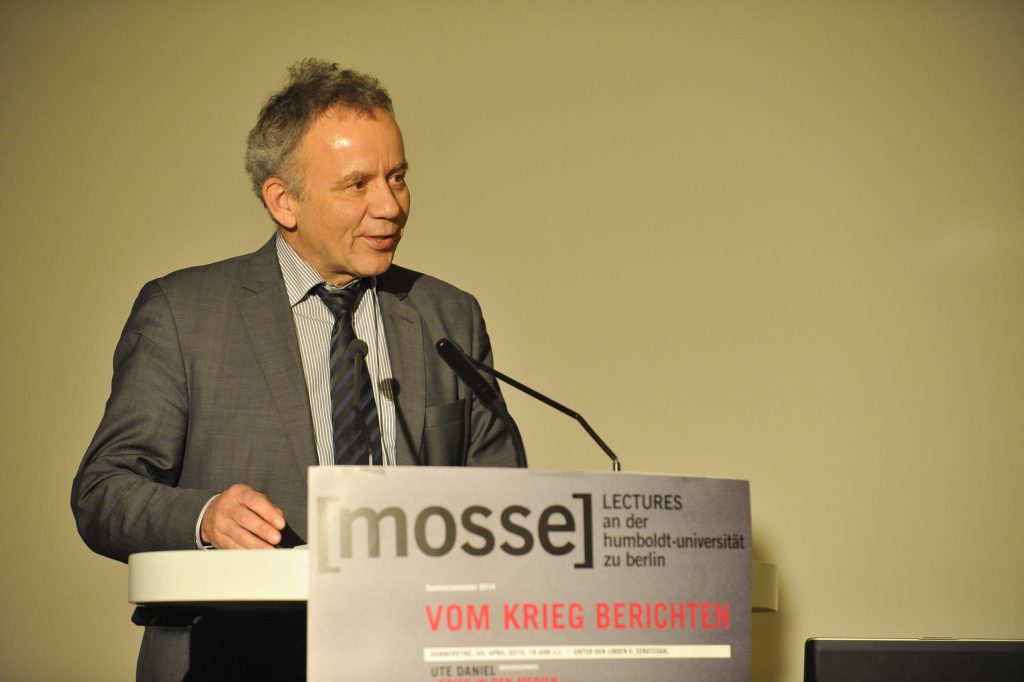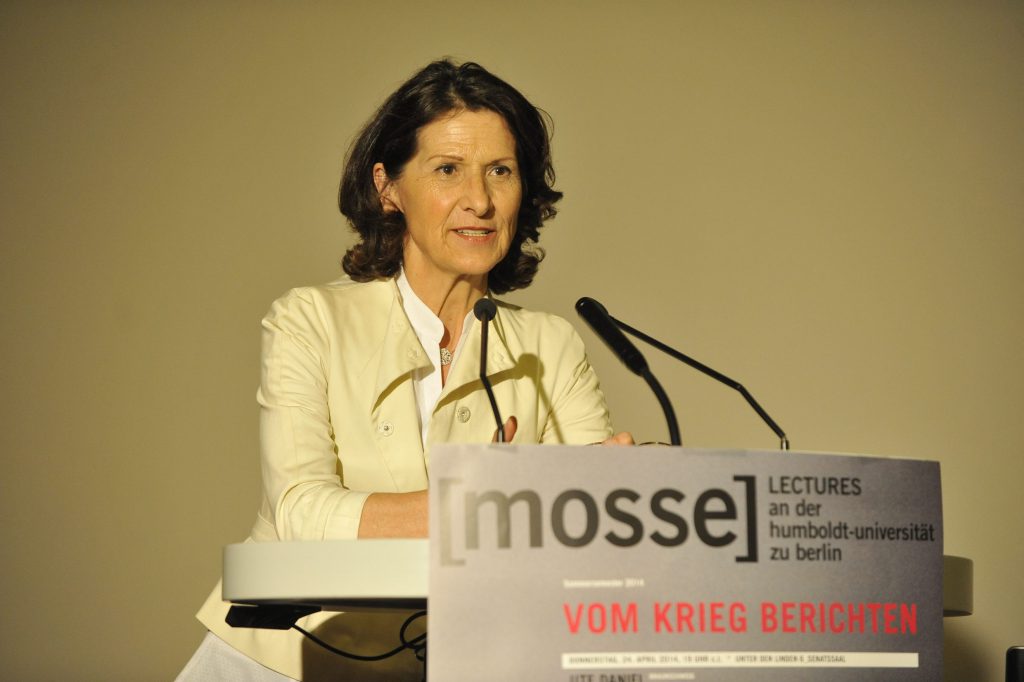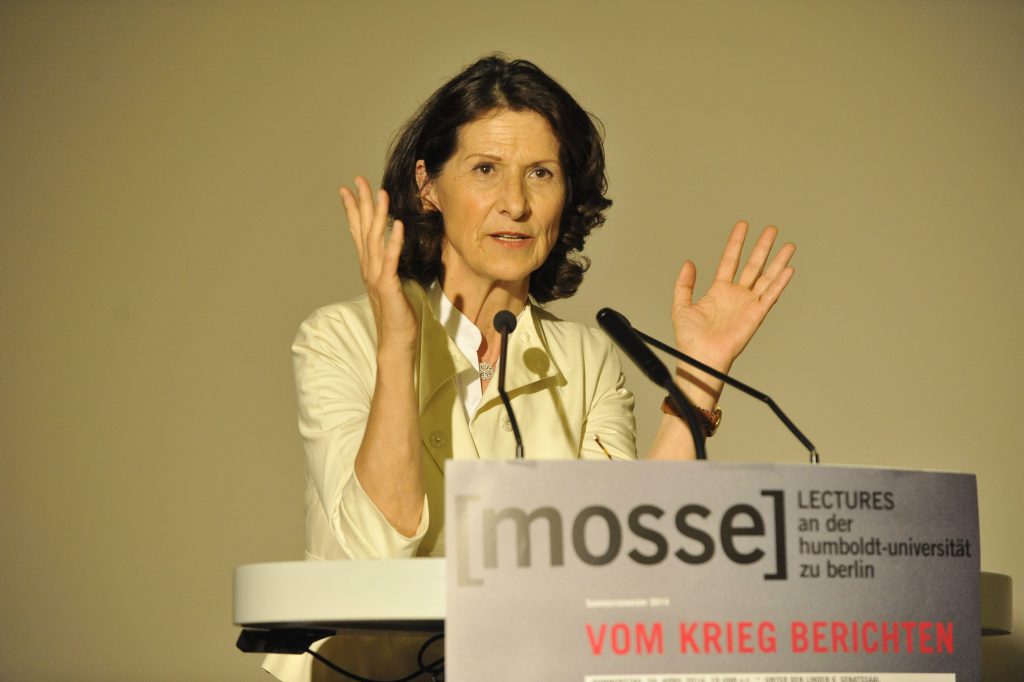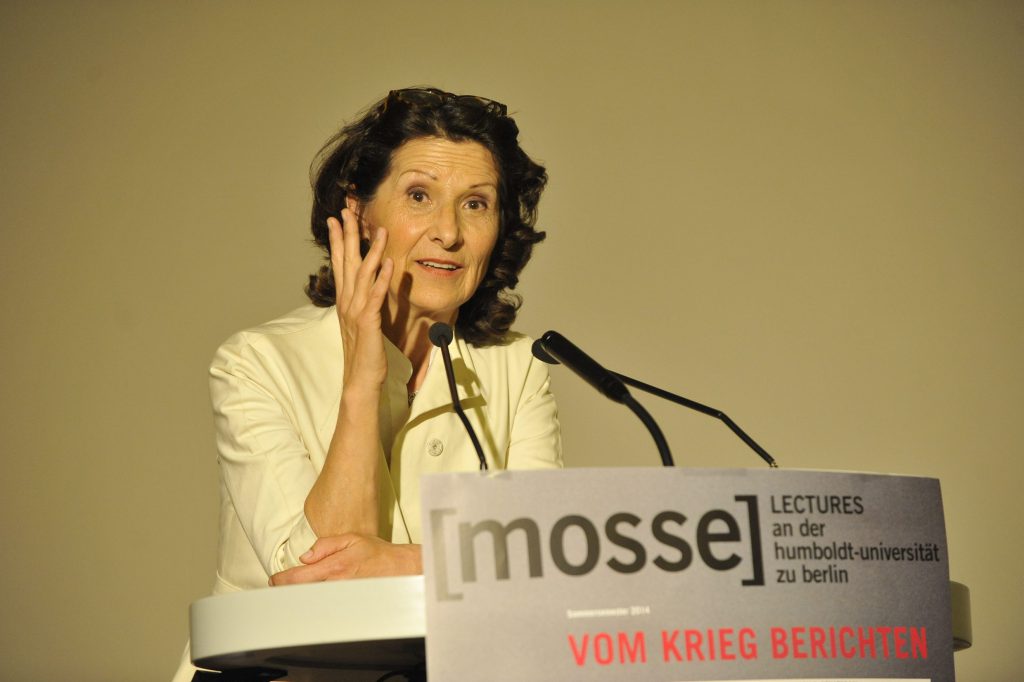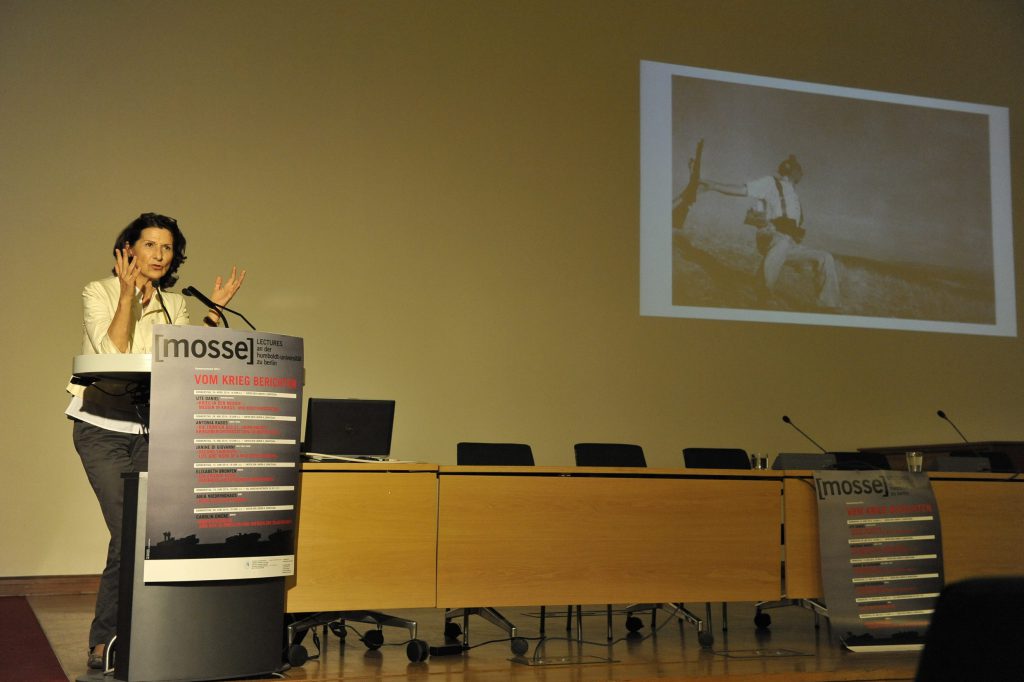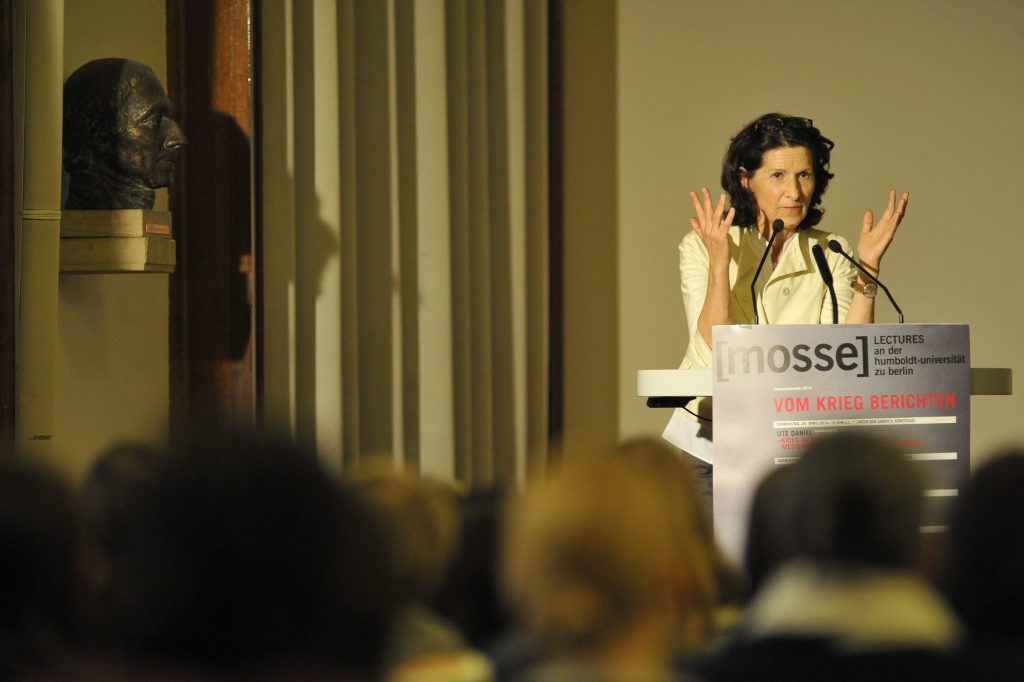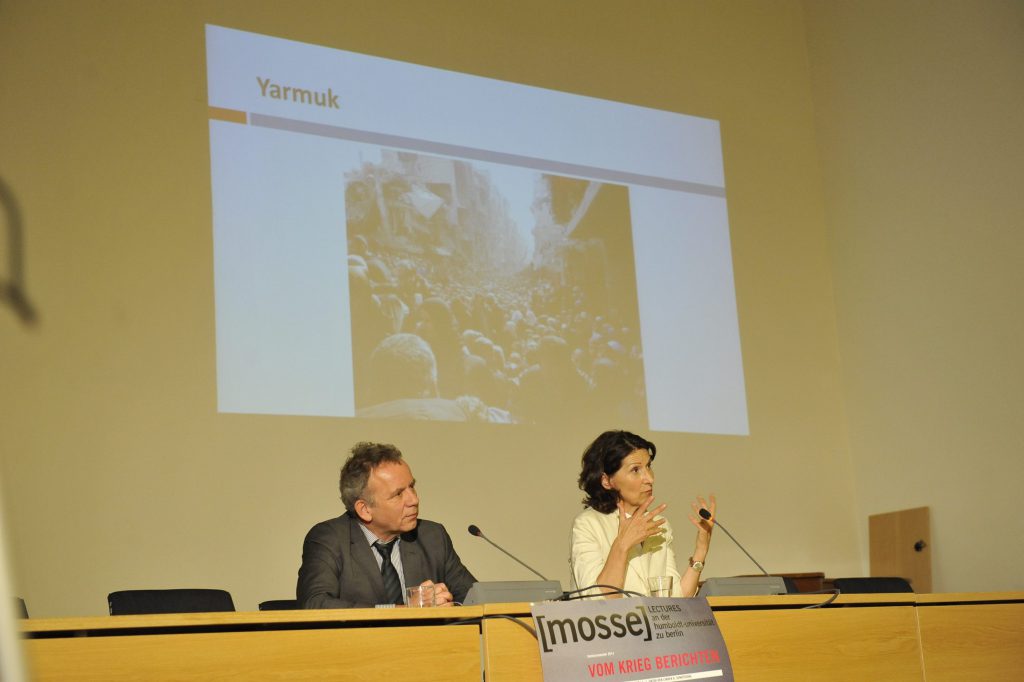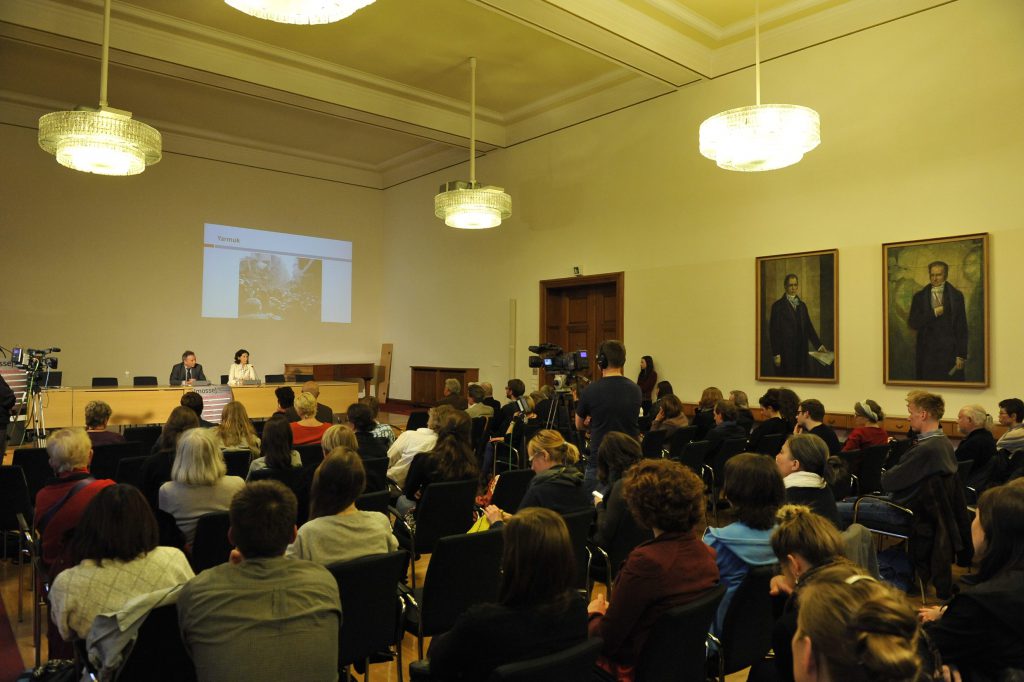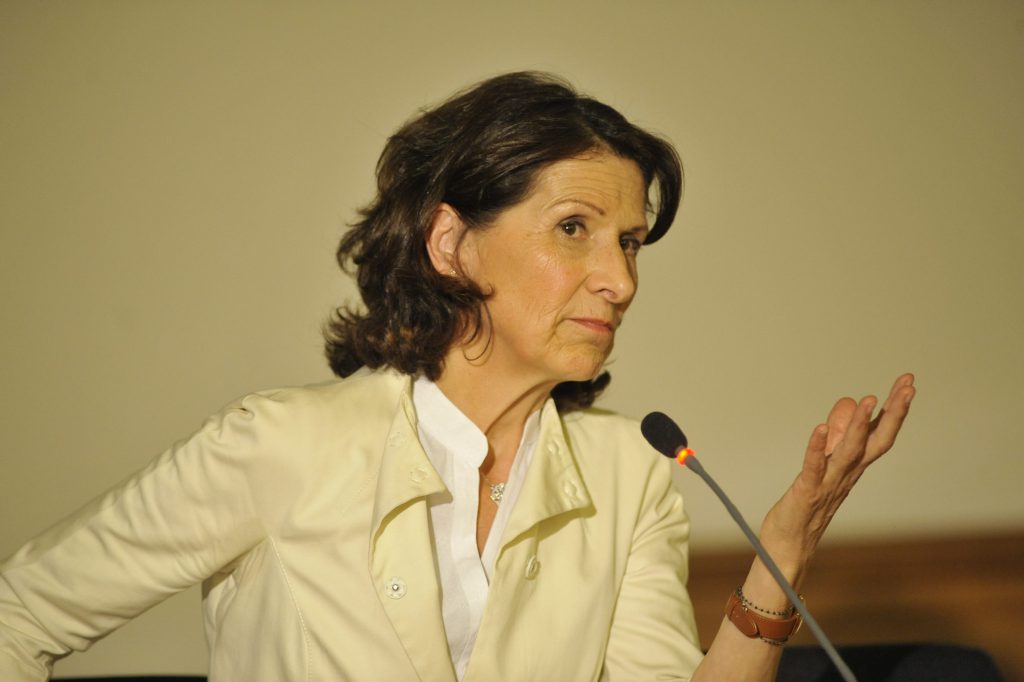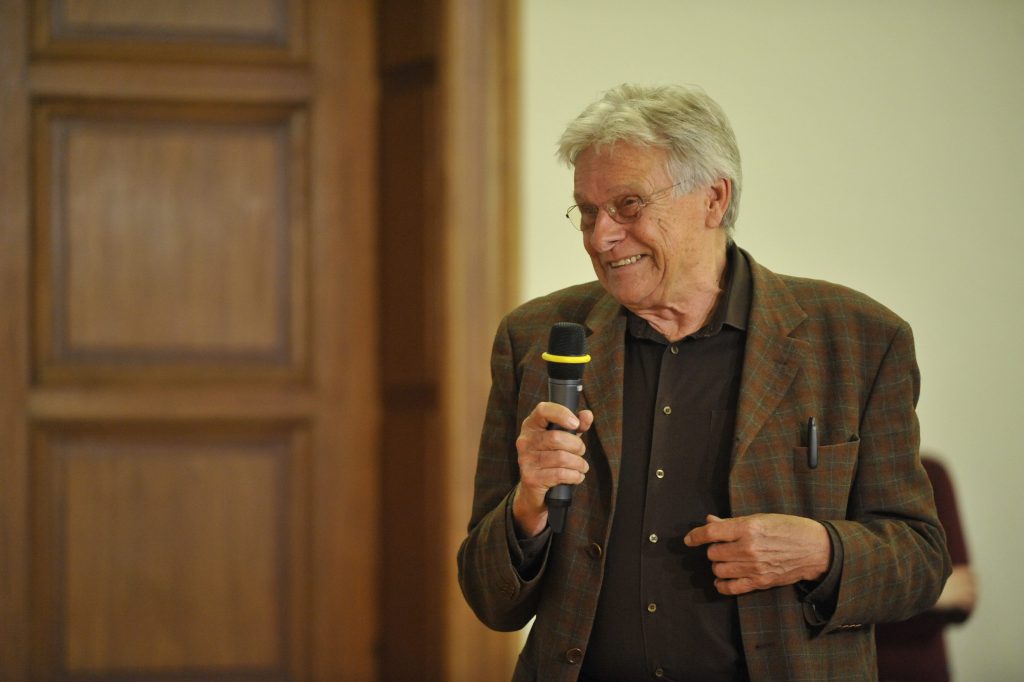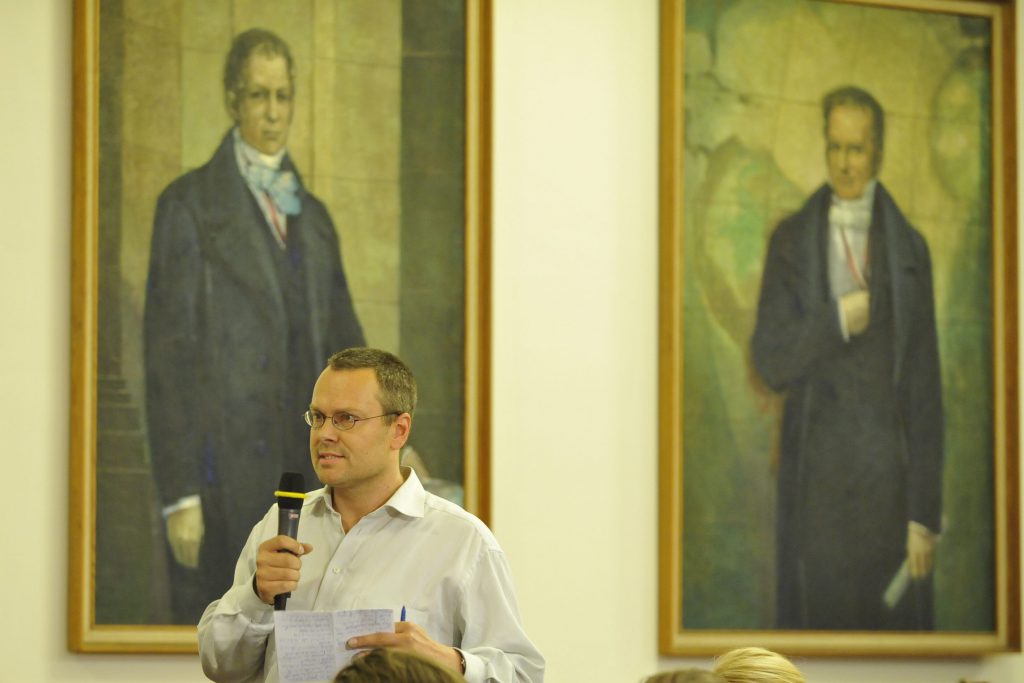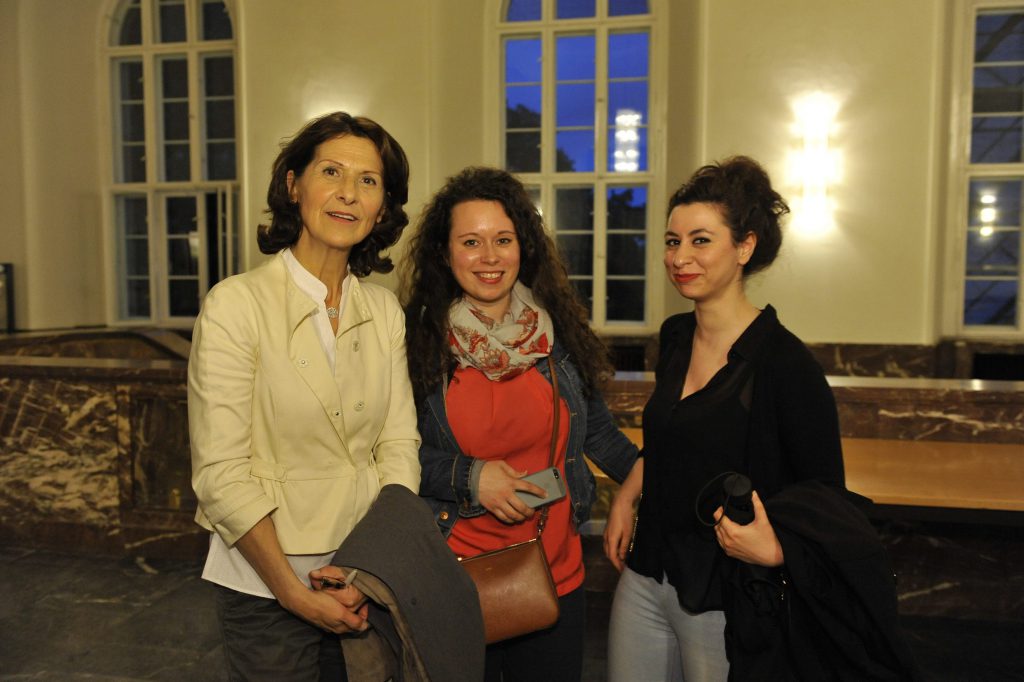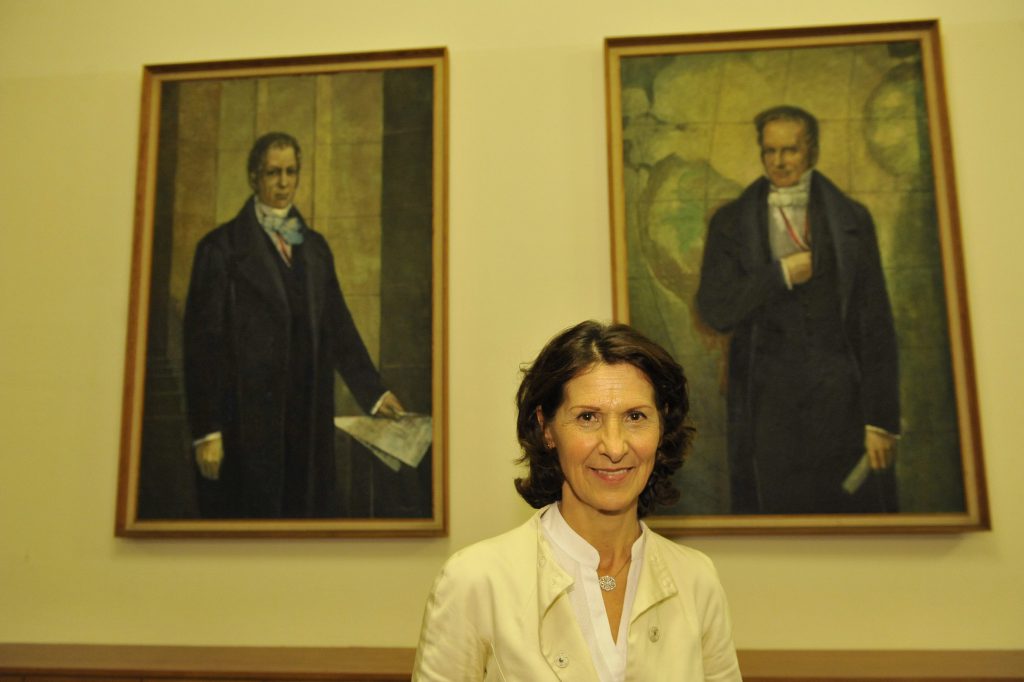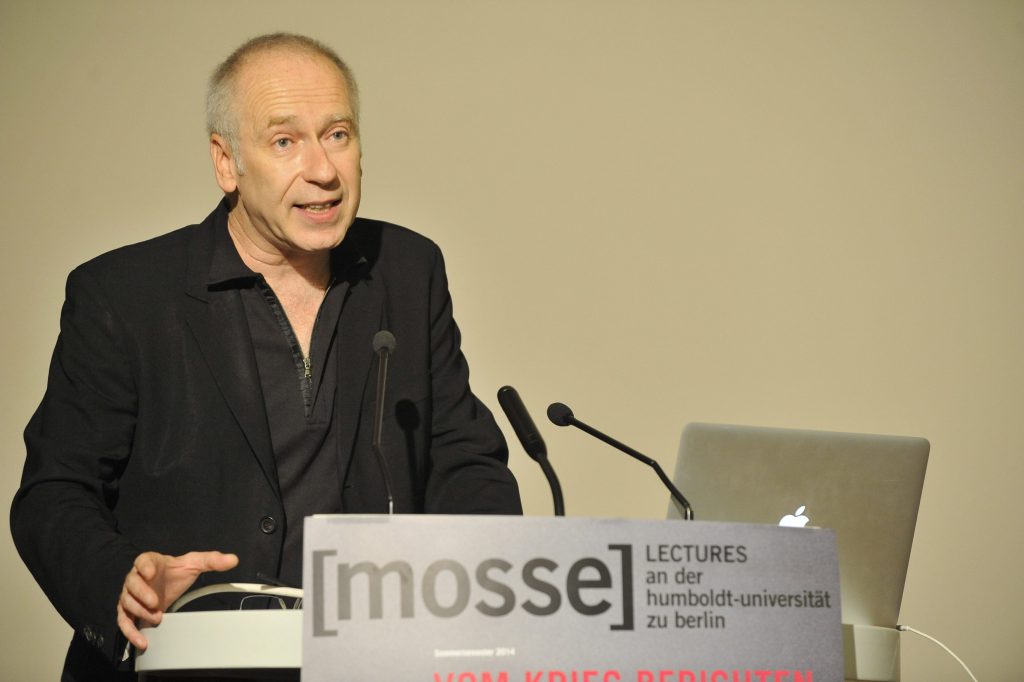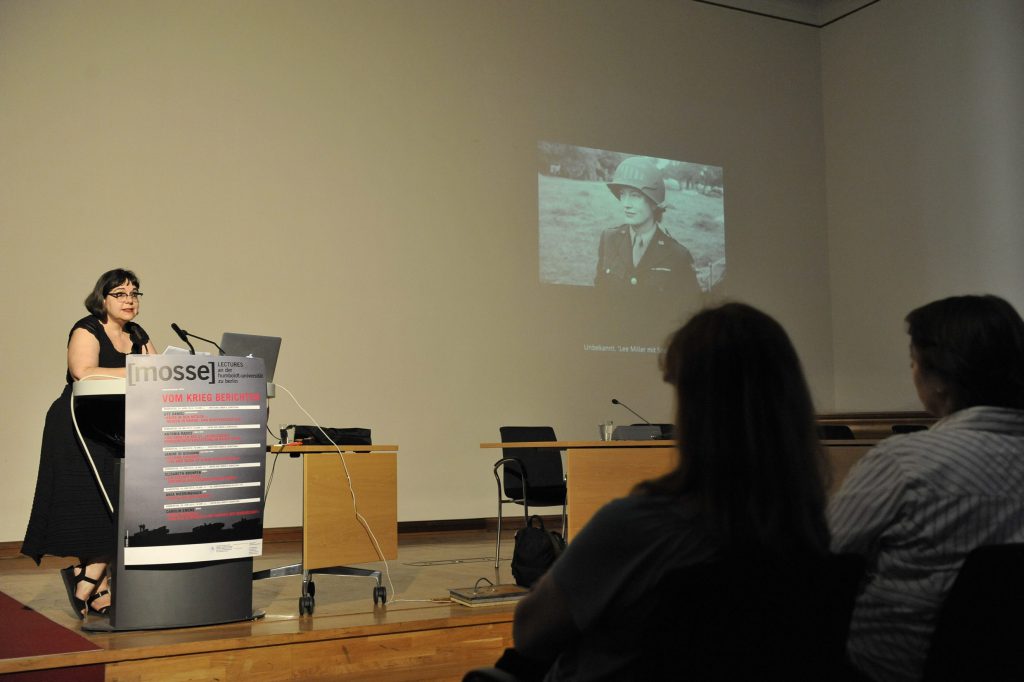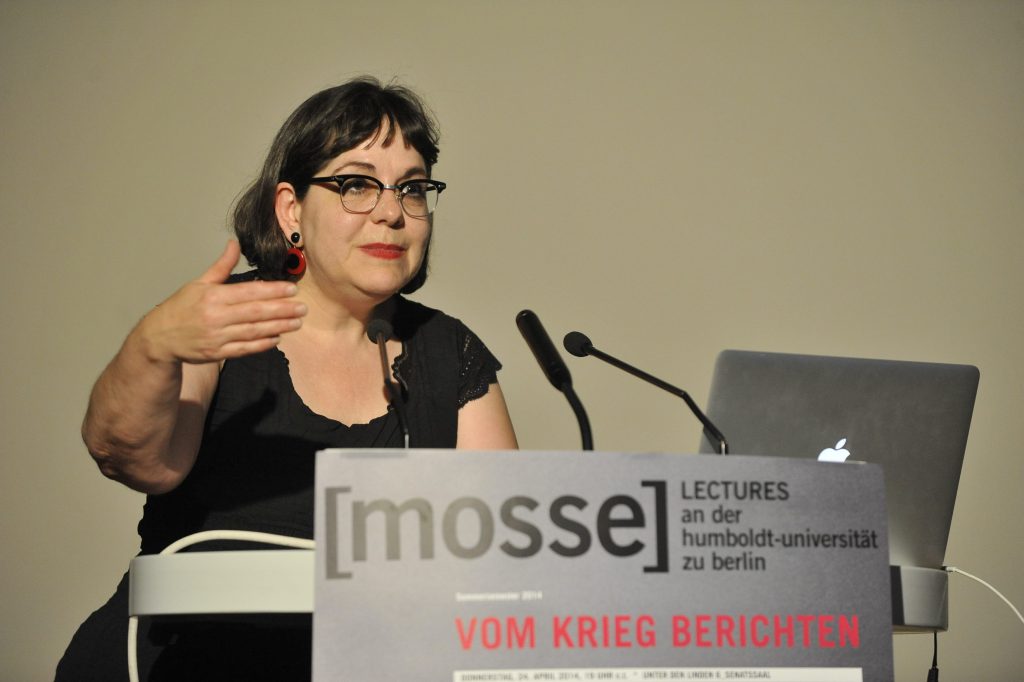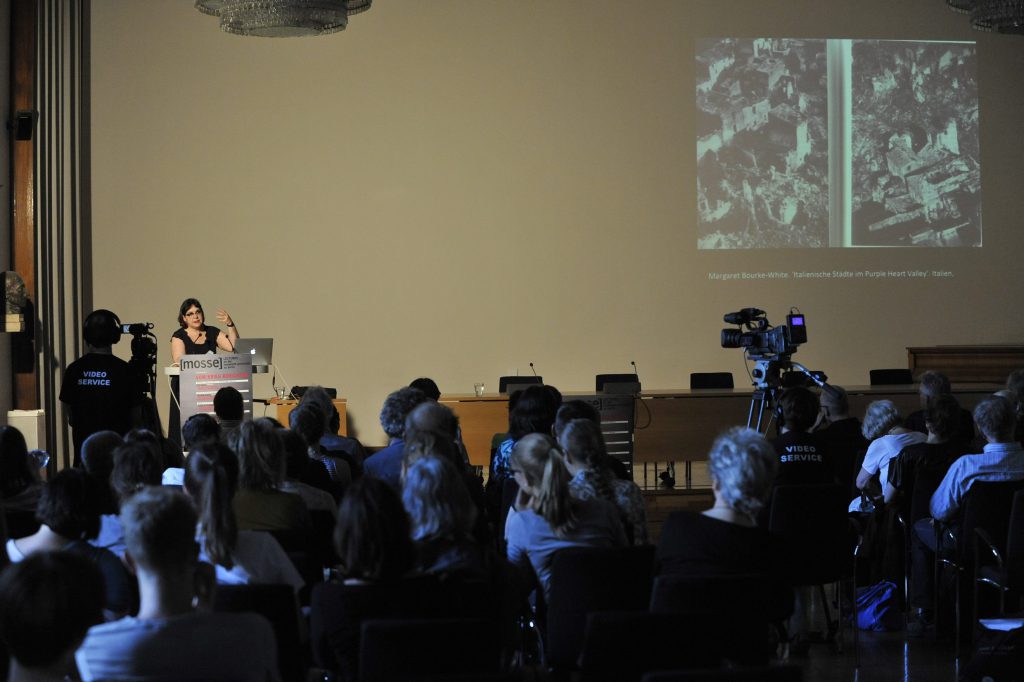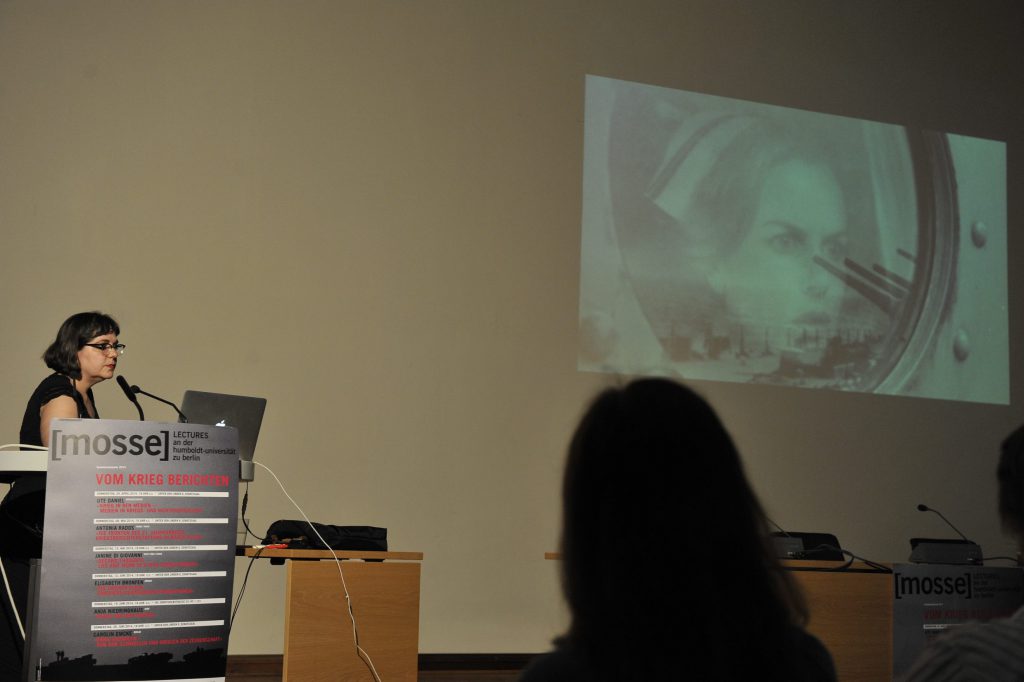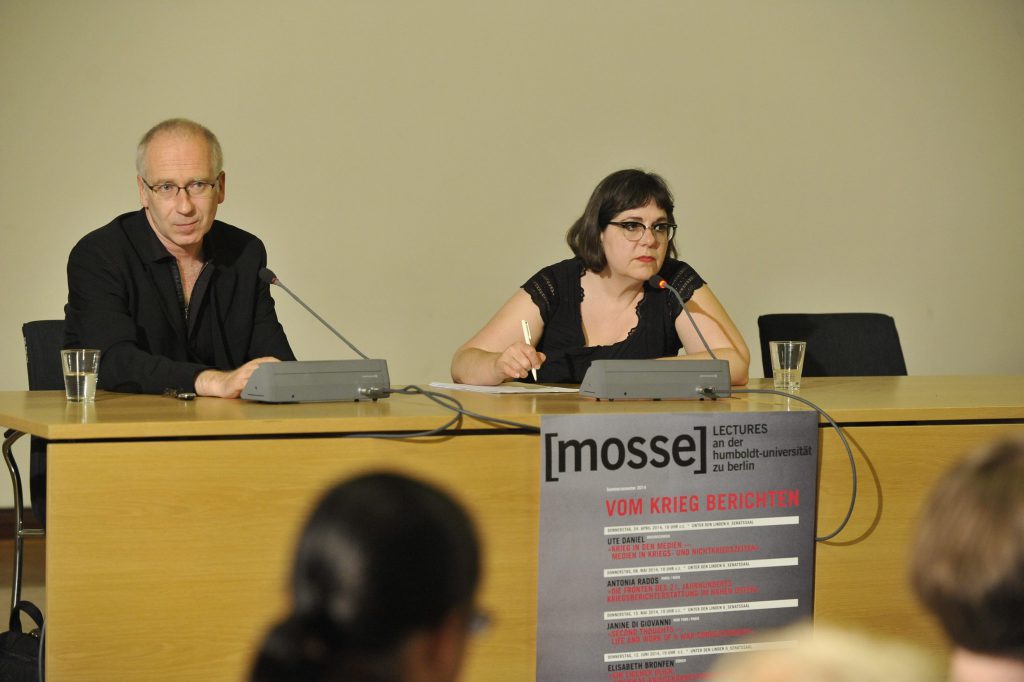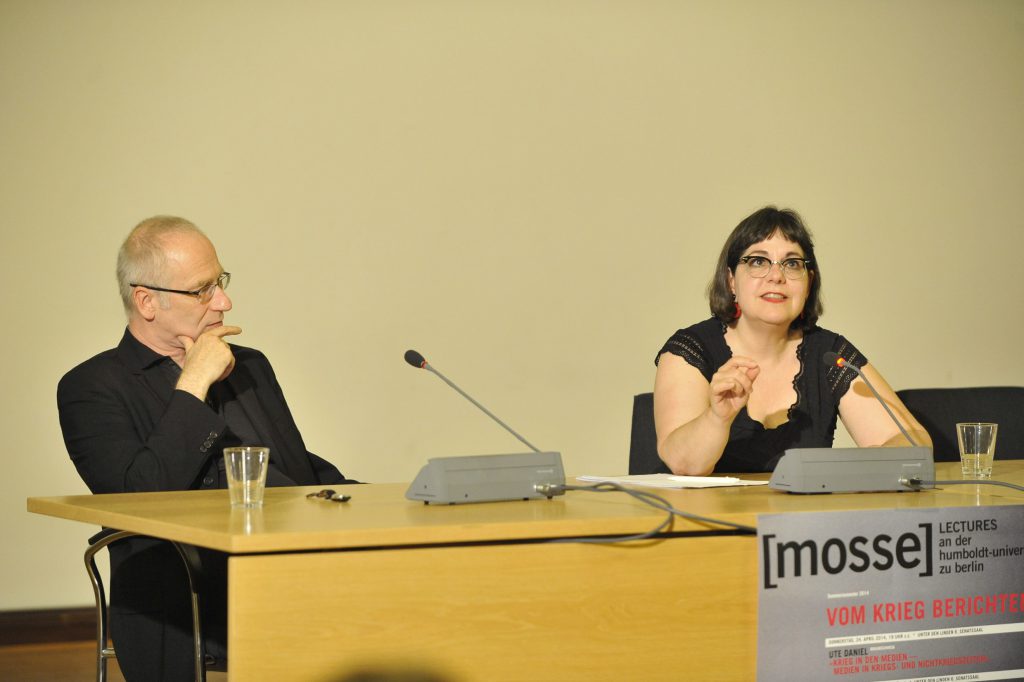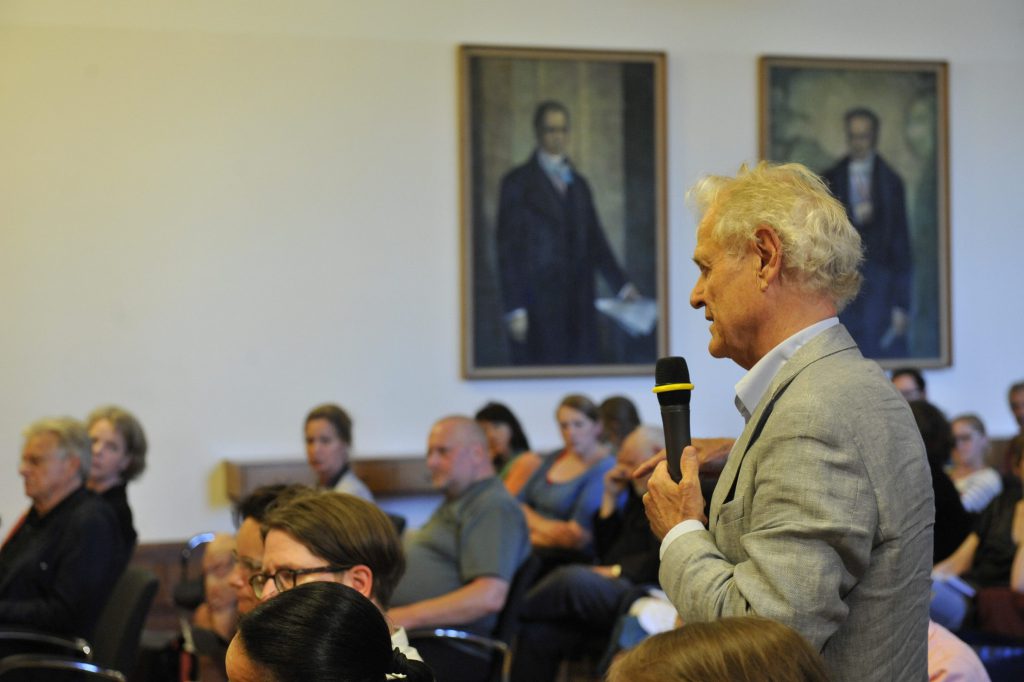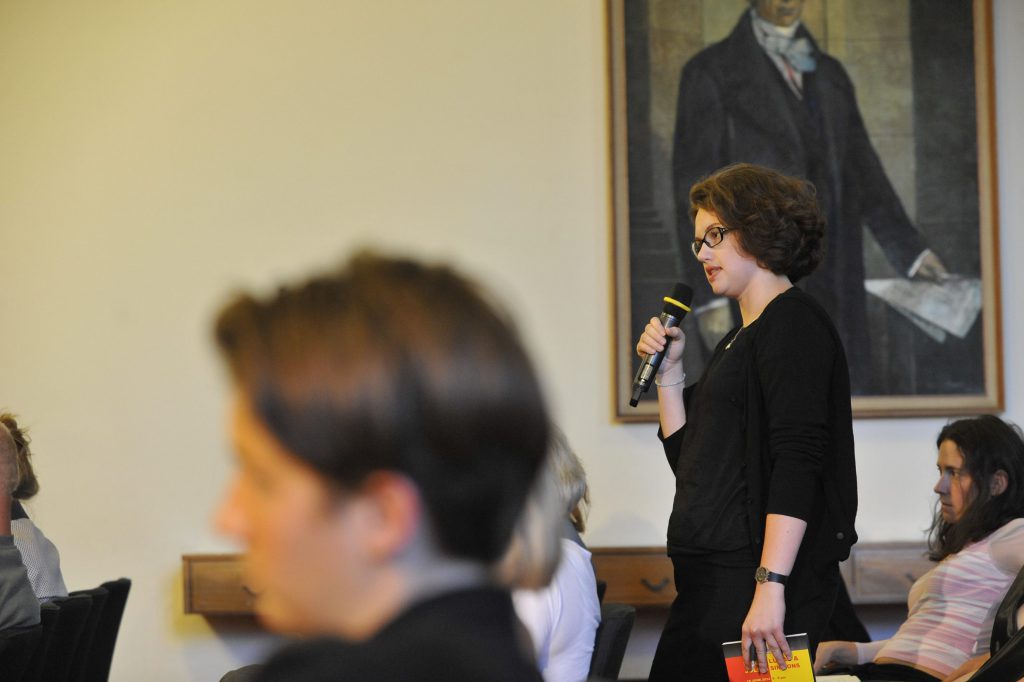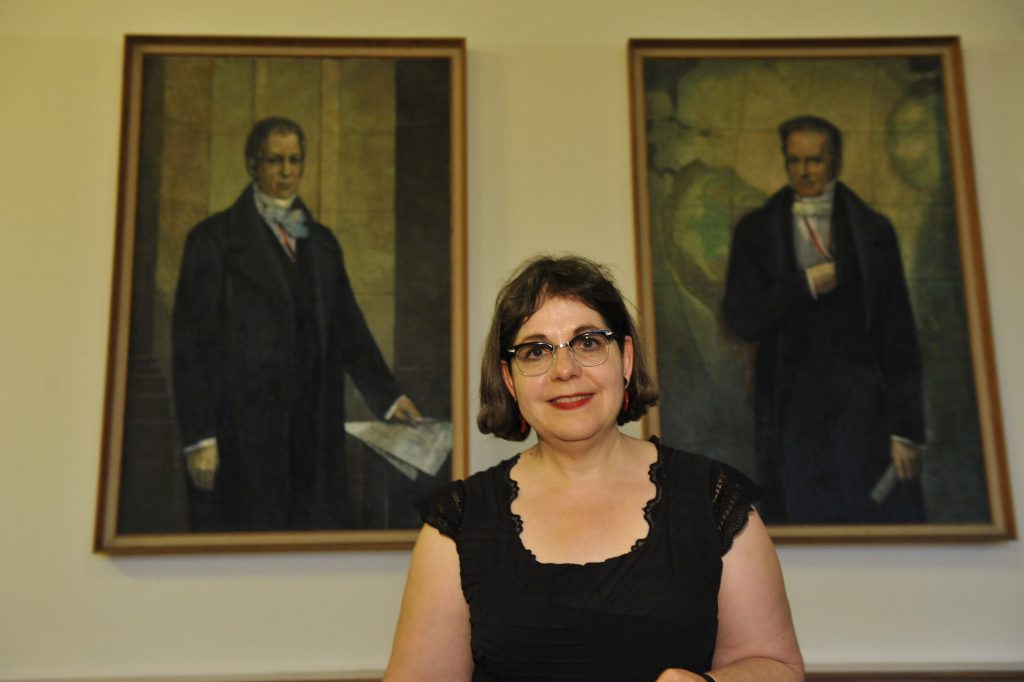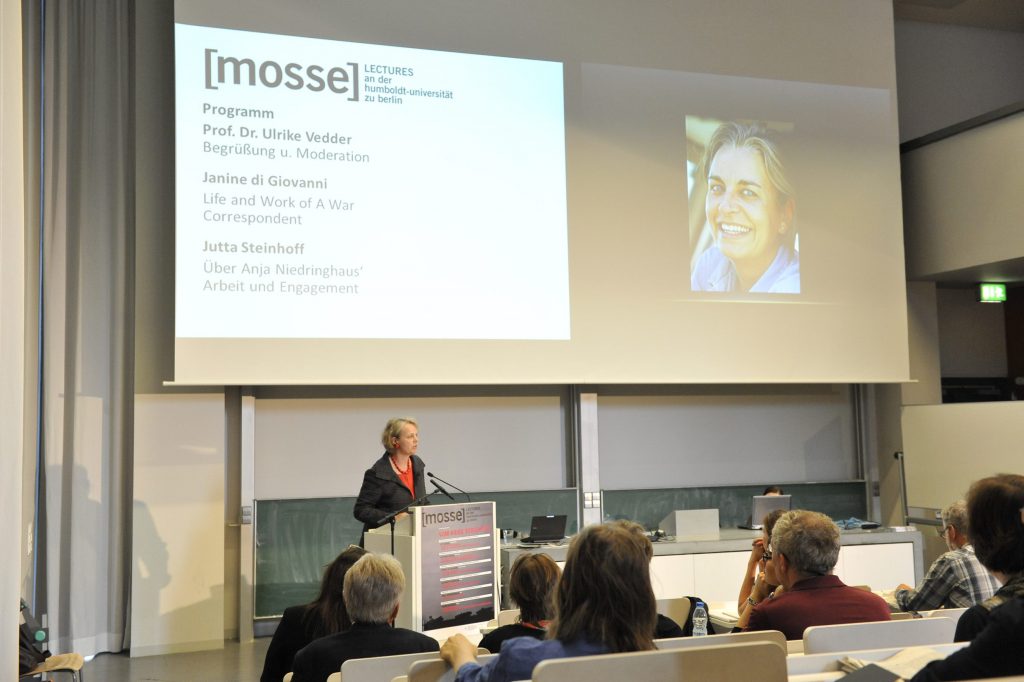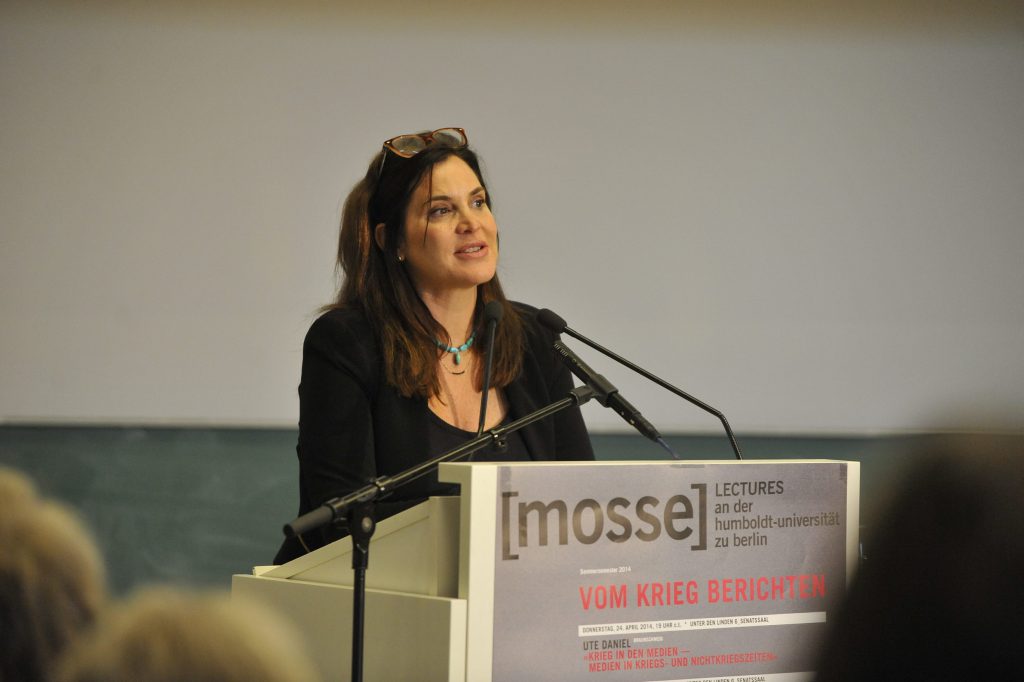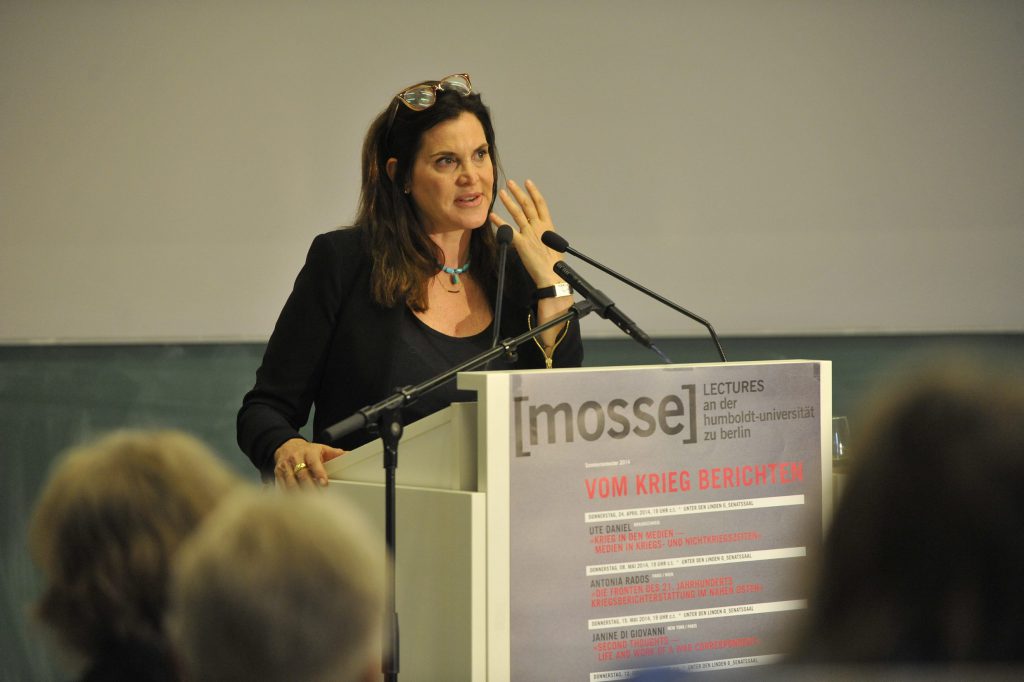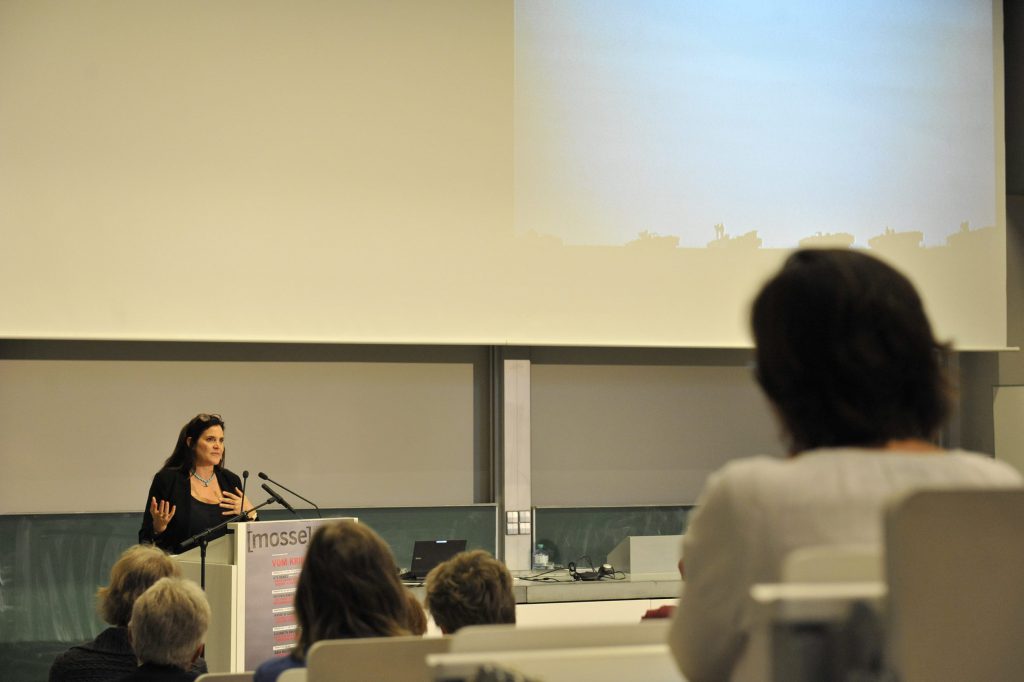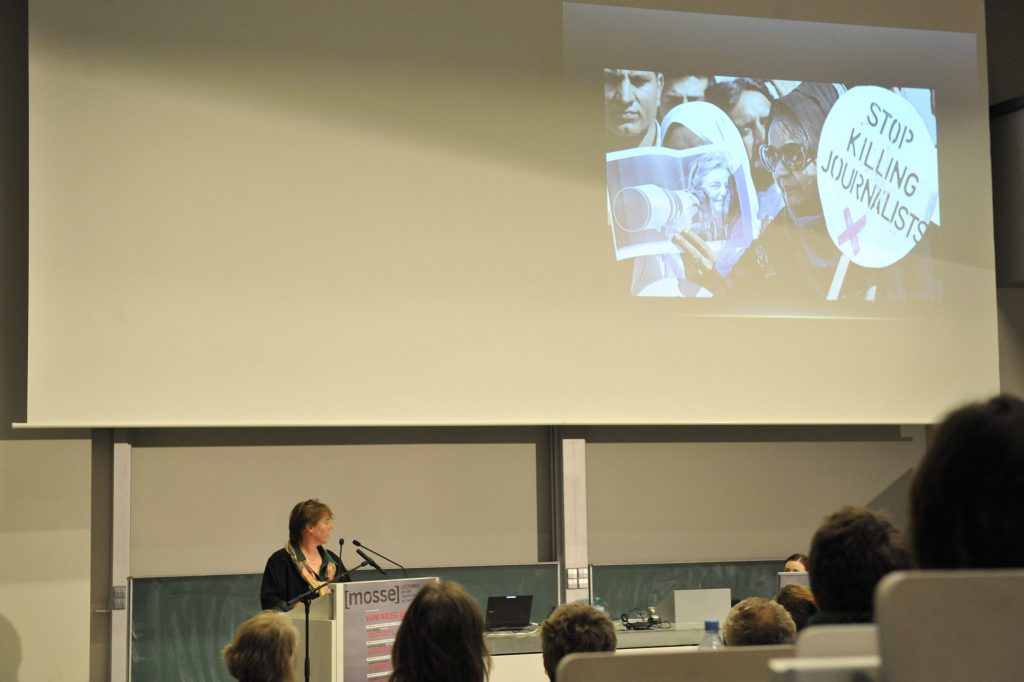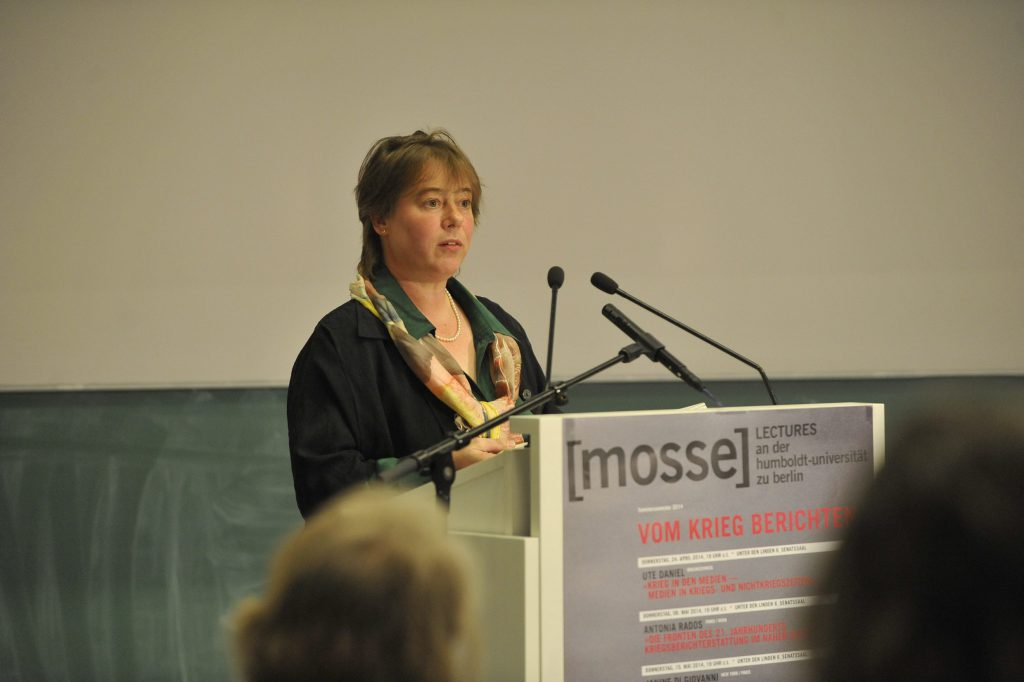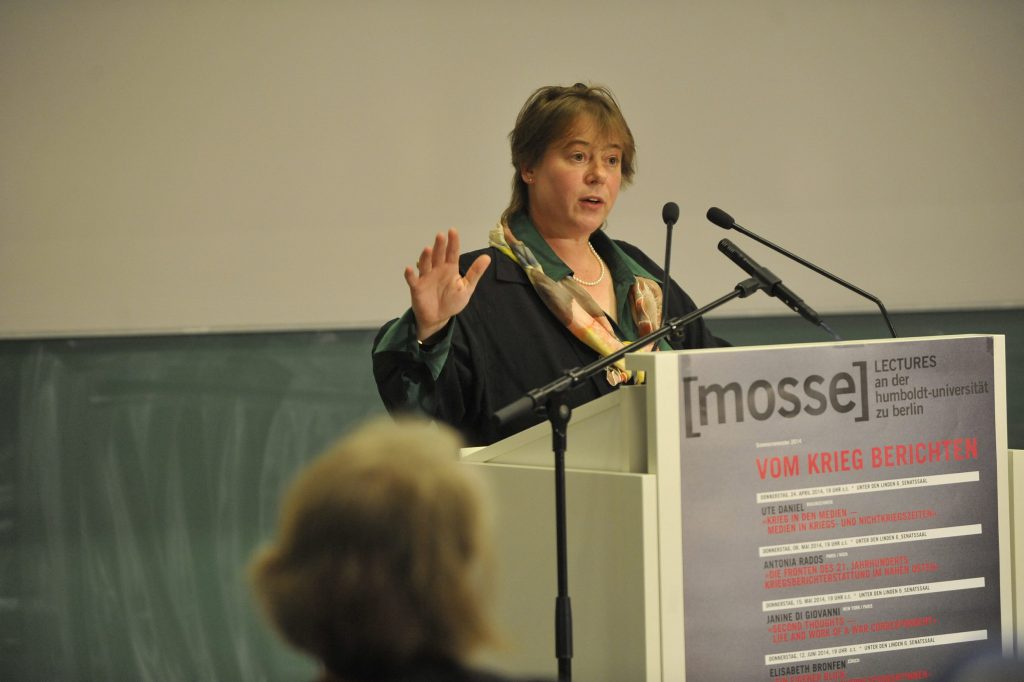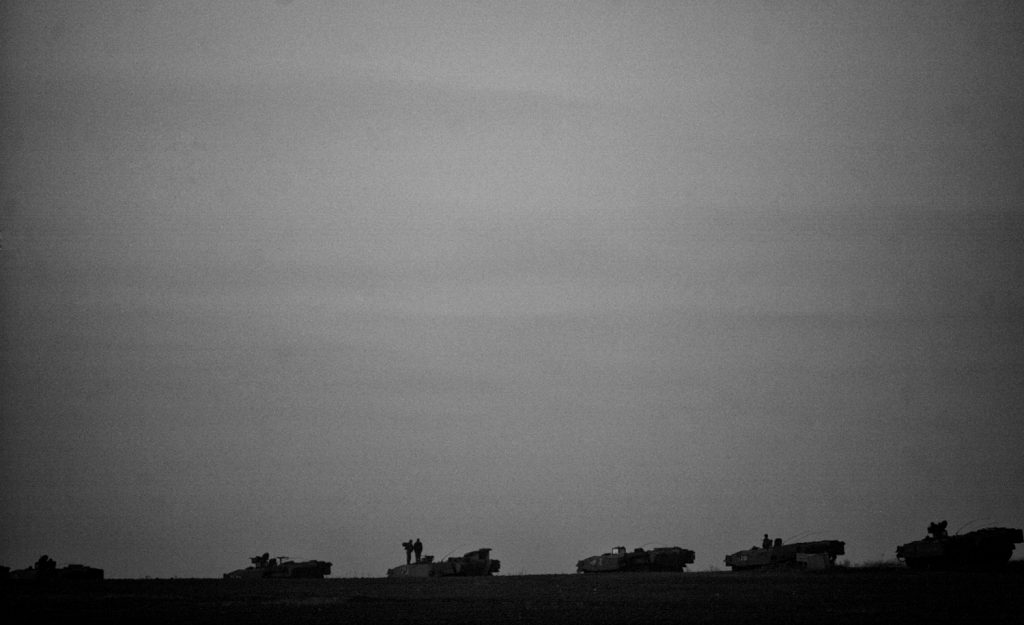In 1924 the novelist Joseph Roth, a First World War veteran, stated what a modern war reporter should be: a bard in telegrams, in the information headquarter and also as a “General Interviewer”, moreover, as demanded, a “prophet of victory”, “away enough from the trenches to stay in the mood, close enough to see the pain and misery and discreet enough to withhold it”. In our days photojournalists and war correspondents in the front line report live in a manner of minutes: embedded and under control like in Afghanistan and in the second Iraq War or under unforeseen circumstances and danger of death in Libya and the Syrian civil war, where Marie Colvin, the war reporter of the London Sunday Times, died in a combat situation in February 2012. In the light of this event the reporting community gathered to rethink their ever more threatening conditions of life and work. The history of war reporting begins in the 18th century, giving evidence of the changing role of the ‘eyewitness’. It is closely connected with the media history. The medialization and virtualization of warfare – electronic equipment, the operations of the intelligence services, and the local presence of the social media – have changed the basic work of war reporters.
Since World War I a remarkable number of women have reported from the areas of conflict and war, also investigated the military complex. “I went from covering the story to being the story” the American photo journalist Molly Bingham wrote with growing skepticism. Women experts, journalists and authors, who lived and did their work under the conditions of military action, will speak in the Mosse Lectures. The social historian Ute Daniel will give an introductory lecture and Elisabeth Bronfen, the literary scholar and film researcher, will comment on war reporting in the Hollywood movies.
Kriegsberichterstattung gibt es seit dem Siebenjährigen Krieg. Sie gibt Aufschluss über den Wandel der Rolle des ‚Augenzeugen‘. Die Geschichte der Kriegsberichte ist immer auch die Geschichte der Medien. In jüngster Zeit hat die totale Medialisierung und Virtualisierung des Kriegsgeschehens – die elektronische Kriegsführung mit ferngesteuerten Waffen und die Tätigkeit der Geheimdienste wie auch die lokale Präsenz der social media – die Kriegsberichterstattung grundlegend verändert.
Carolin Emcke
freie Journalistin und Autorin
Krieg erzählen – Von den Schwellen und Grenzen der Zeugenschaft
Thursday, June 26, 2014, 07:15 pm, Unter den Linden 6, Senatssaal
